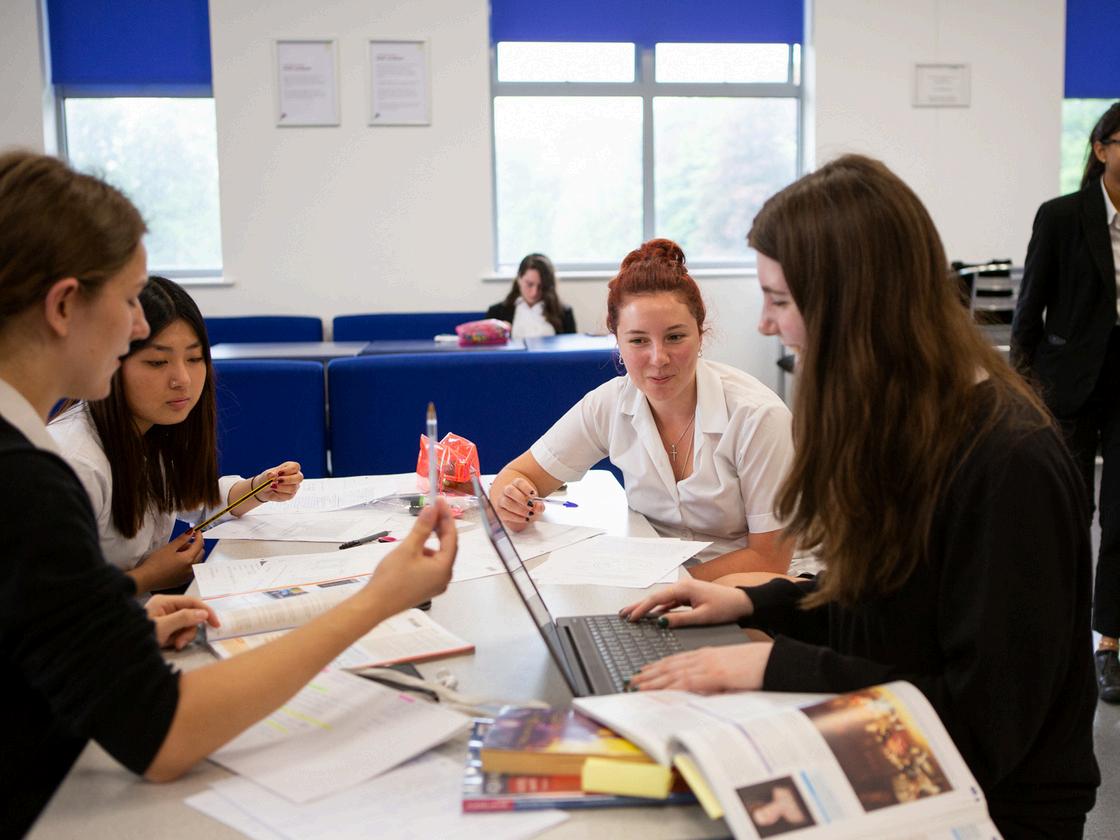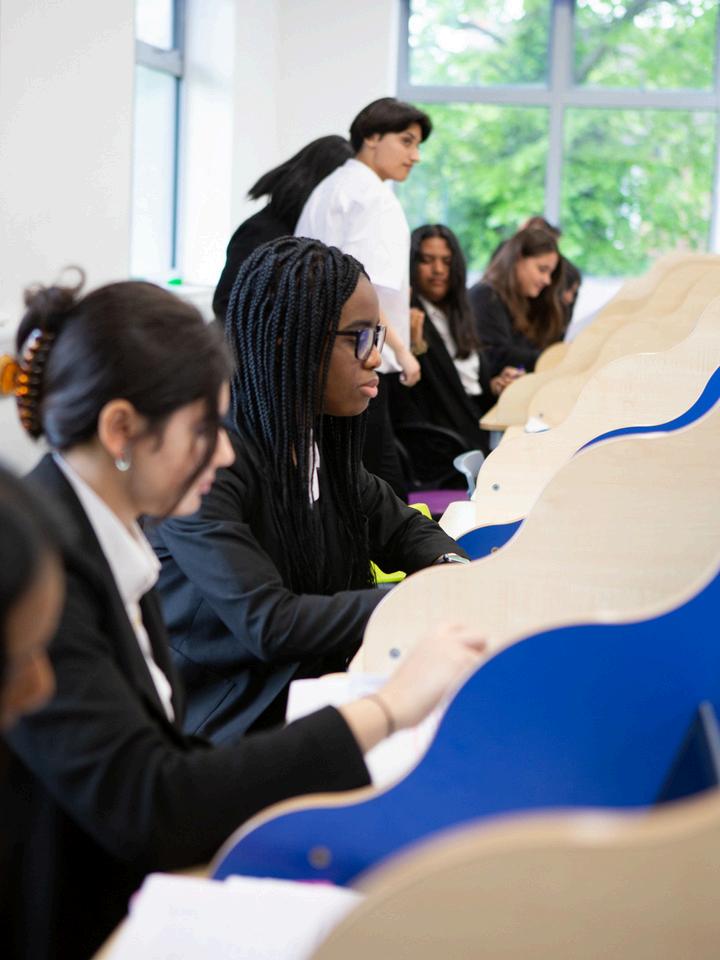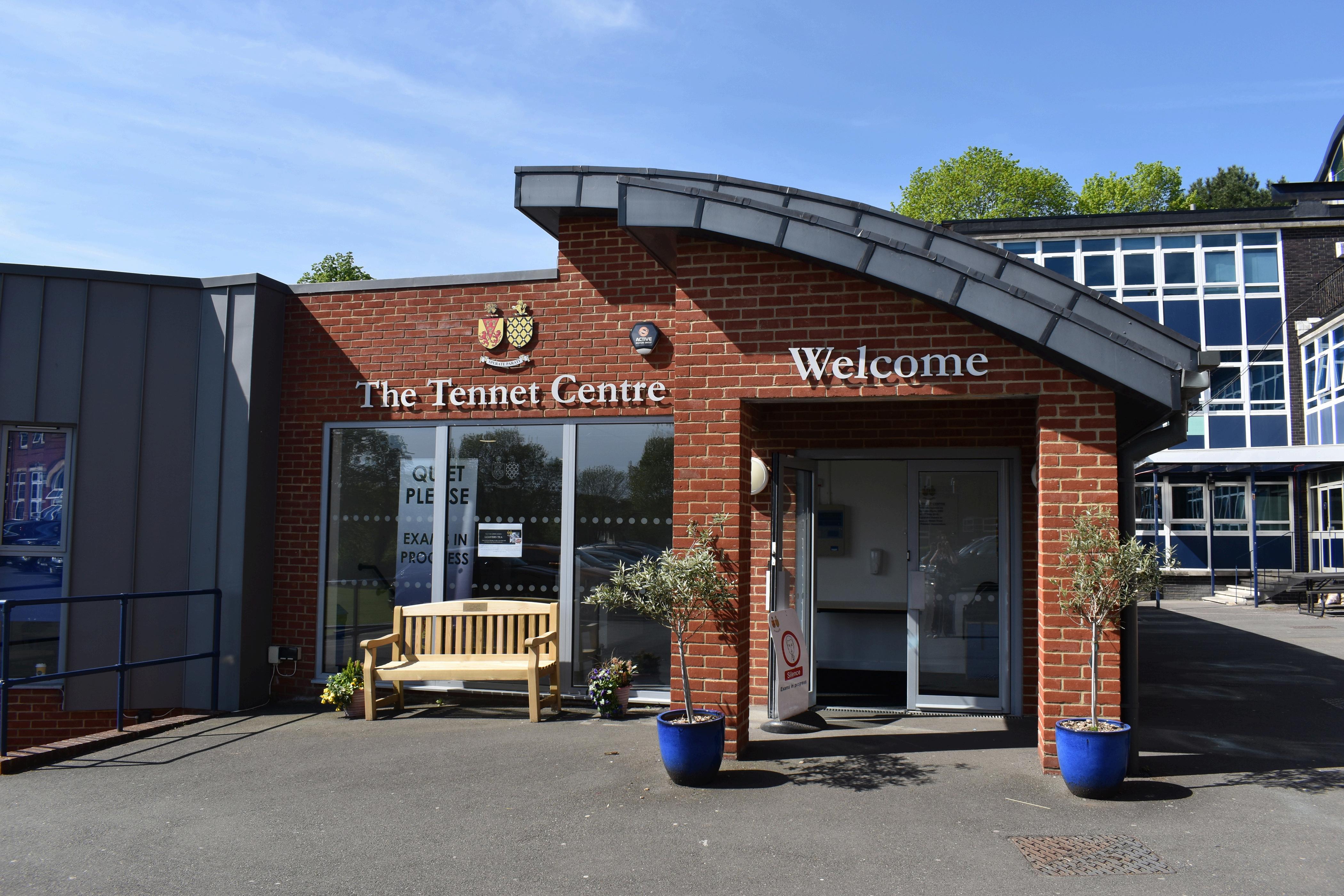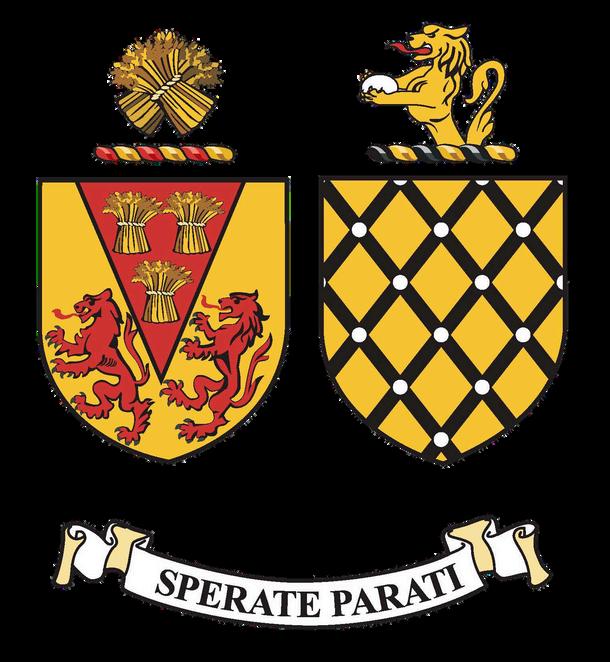

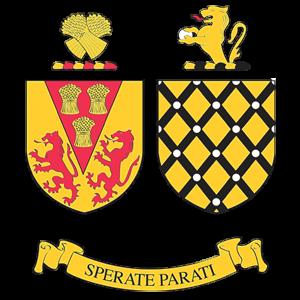
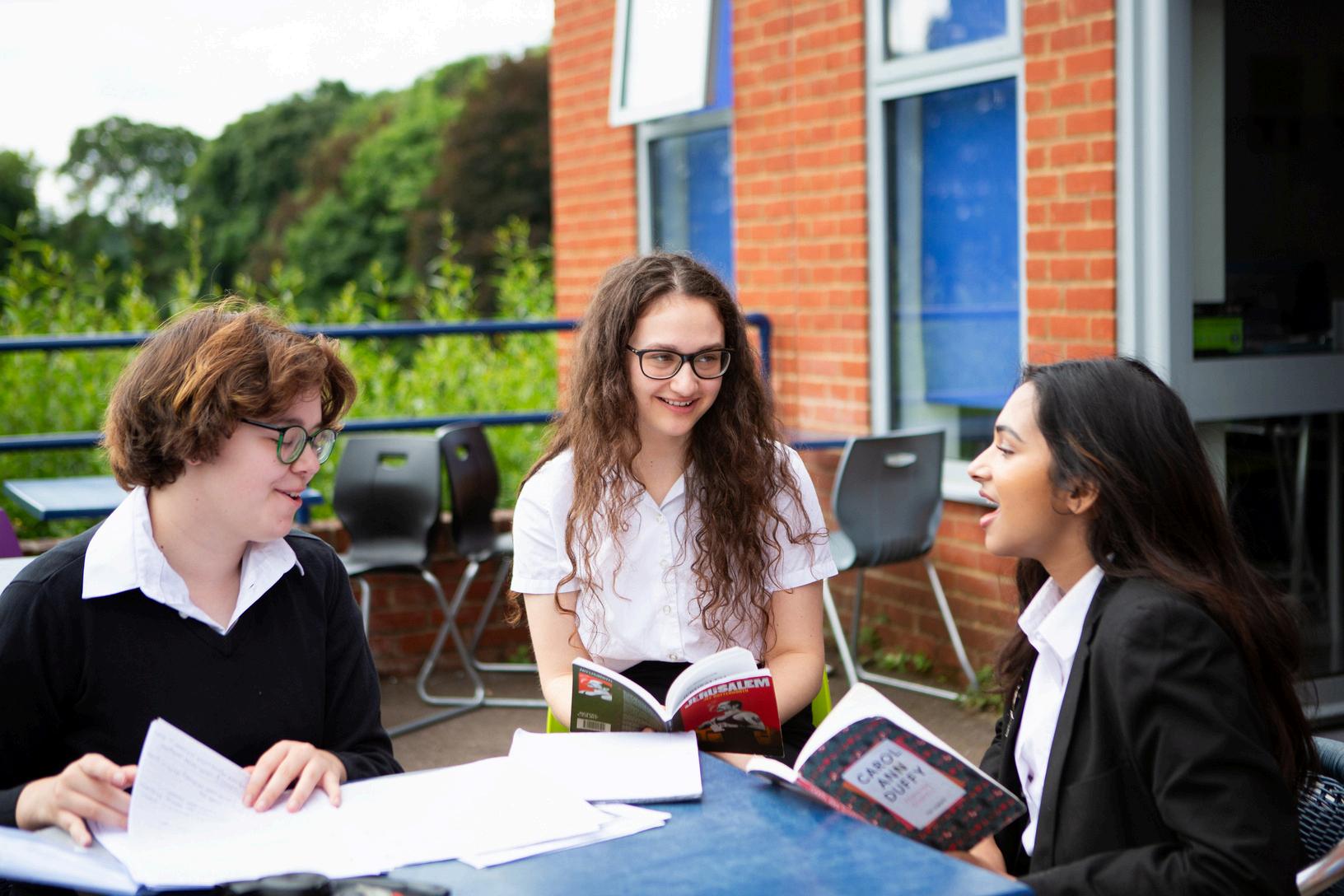
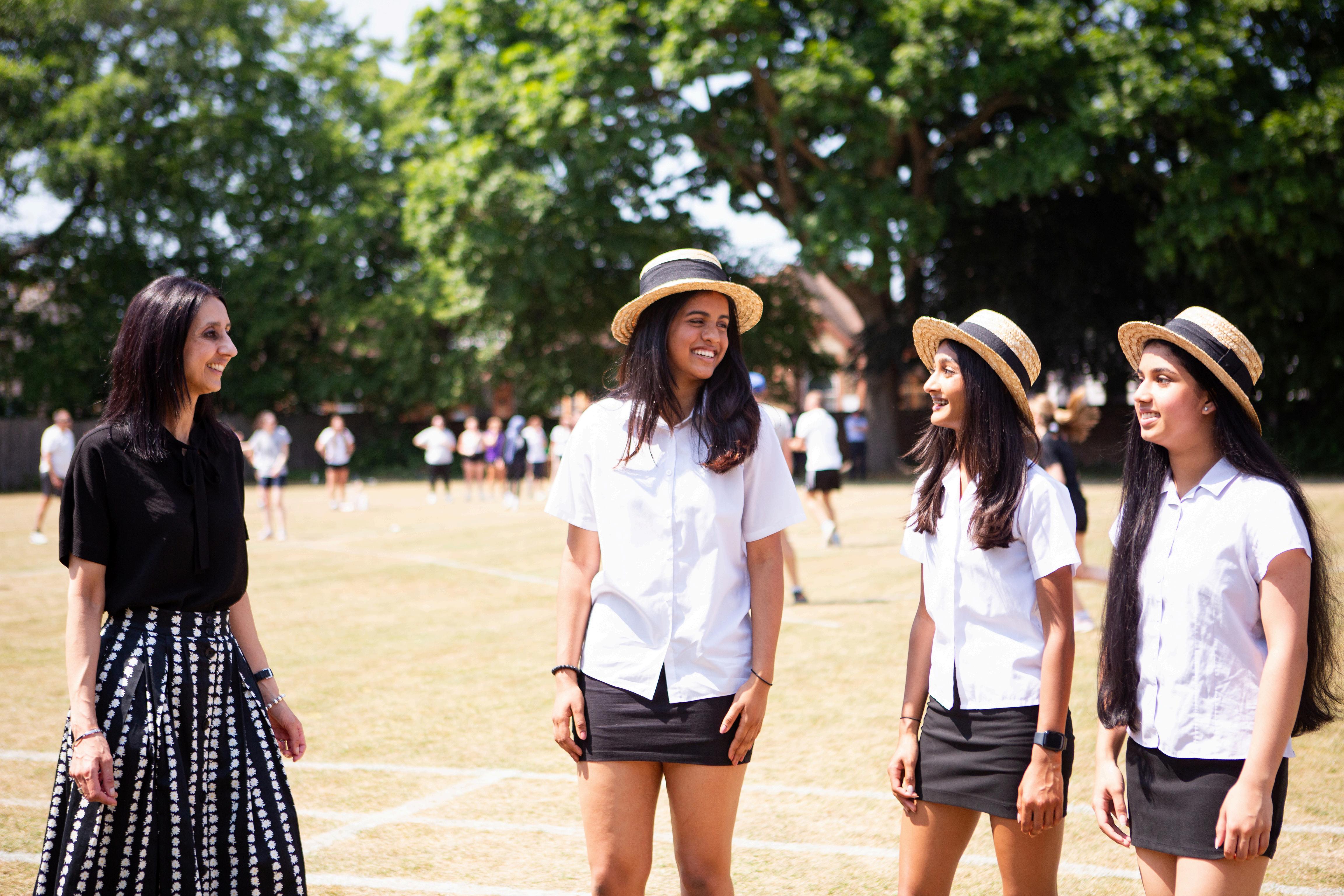
Welcome from Miss Tai
Welcome from our Head Girl
Why choose Watford Girls Sixth Form?
Entry into the Sixth Form
Lower Sixth Options
A Level Subject Entry Requirements for individual subjects
Fine Art
Art Textiles
I can do it, I will do it.






Welcome from Miss Tai
Welcome from our Head Girl
Why choose Watford Girls Sixth Form?
Entry into the Sixth Form
Lower Sixth Options
A Level Subject Entry Requirements for individual subjects
Fine Art
Art Textiles
I can do it, I will do it.
“What makes Watford Grammar School for Girls outstanding is the focus on each girl as an individual and an almost relentless drive to ensure that everyone achieves their very best.” OFSTED
The WGGS Sixth Form is a thriving community of over 400 students. Our sixth formers work hard, and strive for excellence in all that they do
Students in the Sixth Form follow an academic programme, studying at least three subjects to A level They receive outstanding teaching from departments with a record of excellent results. They learn to study independently, to think deeply, and to work to the highest standards of rigour Nearly all of our sixth formers then progress to Higher Education, equipped with the confidence and skills they need to enjoy success in the future
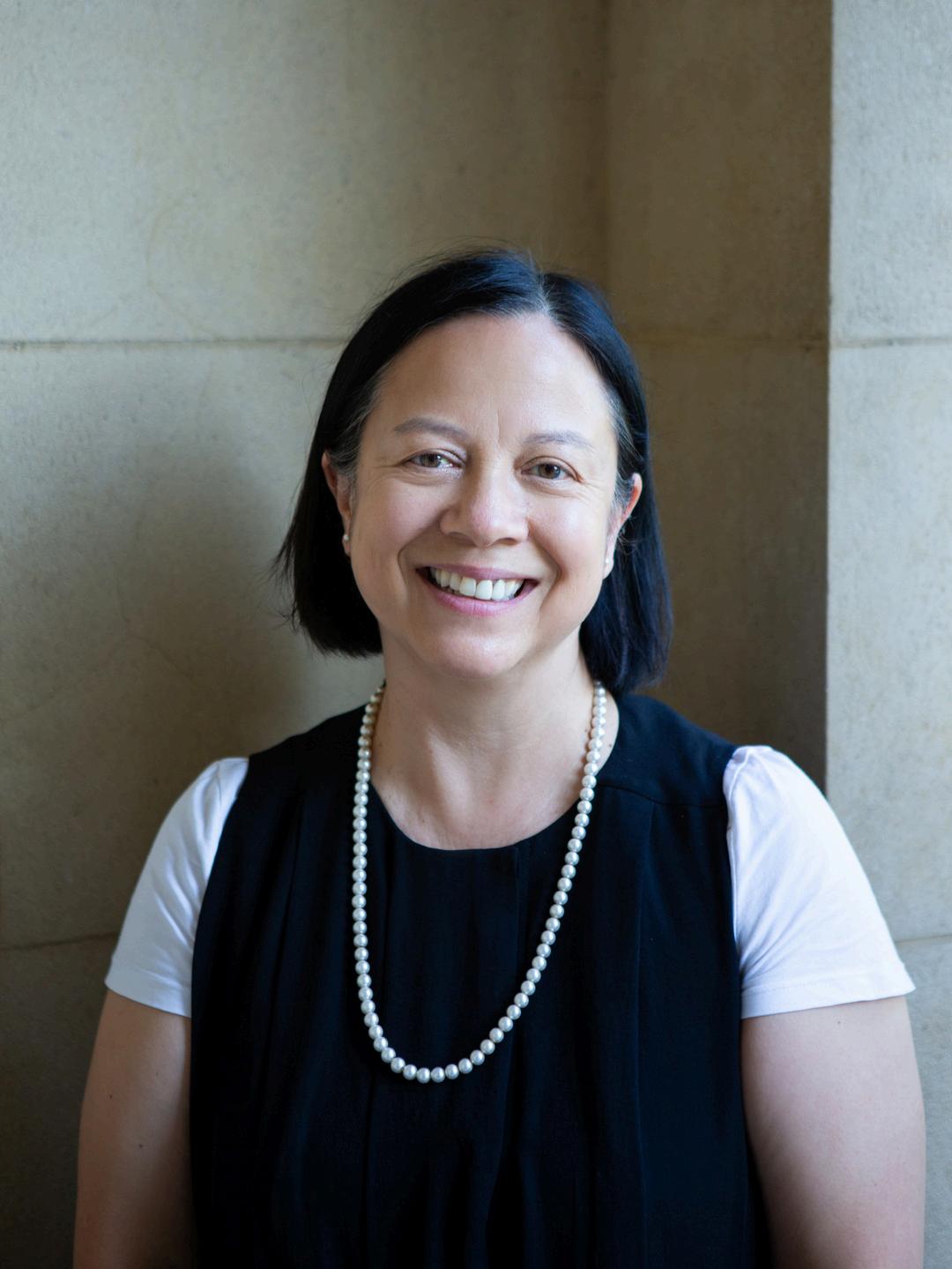
Our sixth formers play a crucial role in the school They are leaders and role models for younger students. They run school societies and organise events for students in the lower school. They are also vital in the school’s work in the wider community, and especially in its charitable work.
We are immensely proud of our sixth formers. They leave us as confident, knowledgeable women, and go on to achieve great things
This prospectus will give you a flavour of life in the Sixth Form. I hope that, when you have read it, you will want to make the WGGS Sixth Form your next step

Miss Sylvia Tai Headmistress
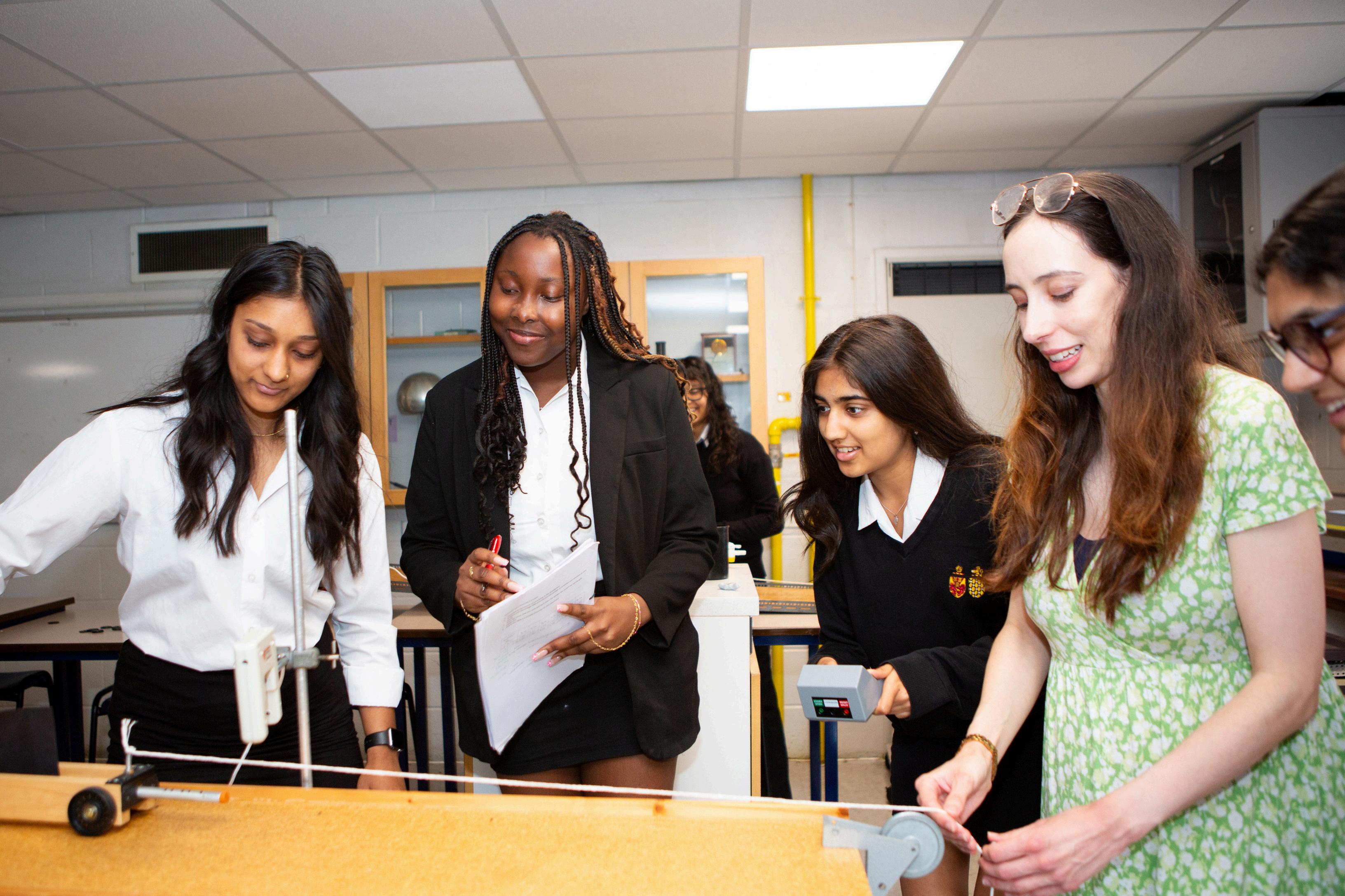
Dear Year 11 students and families,
Welcome to Watford Grammar School for Girls!
My name is Keya, and I joined the school in Year 7. I still remember visiting Watford Girls for the first time on an open day and being absolutely fascinated by the bridges! The school seemed so big then, and everything felt so complicated, unfamiliar, and even a bit scary.
Now, as I am in my final year at the school, I can genuinely say that it has been a wonderful journey going from an awestruck ten-year-old to a confident, ambitious young woman in the Sixth Form, ready to go out and achieve everything I am aiming for and tackle any obstacles that are thrown my way
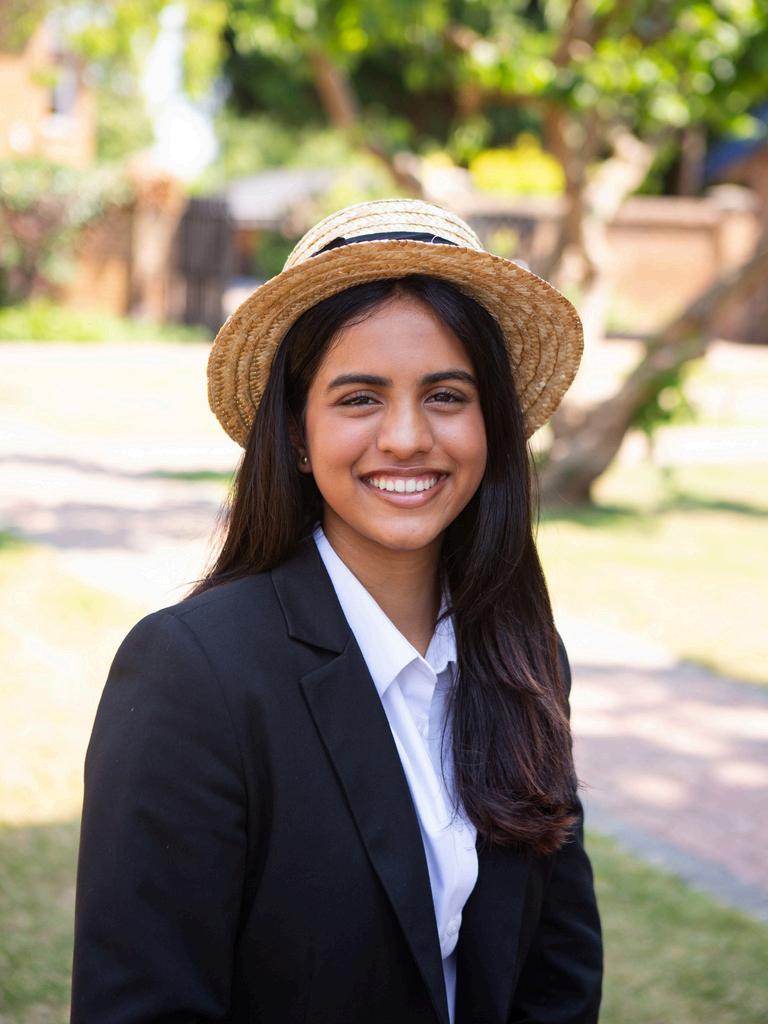
The transition from Year 11 to Sixth Form can feel like a jump into the unknown - a new set of rules, greater academic focus, and the first steps towards life after school. Whether you are already a Watford Girl or joining us for the first time, our Sixth Form provides a nurturing and challenging environment to navigate this new chapter with confidence This is where you will gain the independence to explore your academic passions, the resilience to handle a demanding workload, and the maturity to make critical life decisions.
Watford Girls pushes you to work hard, to think hard, to enjoy learning. In Sixth Form, this translates into highlevel engagement with your chosen subjects Whether you are doing cool science experiments, intensely debating books, or sculpting or designing new creations, you are always surrounded by people who want you to and believe that you will succeed Sixth Form life here goes far beyond exams There is extensive support and exposure available to prepare you for what comes next. For example, tailored guidance for the UCAS process for university applications, especially for competitive courses, and for exploring other options such as apprenticeships
Here you are supported as a whole person by staff who truly care and classmates who become your closest friends From check-ins with your form tutor to encouraging discussions with subject teachers, you always feel seen and valued.
Crucially, Sixth Form is where the most significant opportunities and leadership roles emerge. There are so many clubs and societies, from Formula One Club to Bollywood Dance Club, Medical Society to Debate Club, and many, many more majority started and run by the students Here, you take the initiative to lead and assume responsibilities that benefit the entire school, such as being part of the prefect team or mentoring younger students Everyone has a space to express themselves, further their passions and strengths, and find their people.
Vibrant and full of life, ours is a truly diverse school that always resonates with its 'can-do and will-do' spirit Whatever future you imagine for yourself, this is the perfect place to begin building it I can’t wait to see how your next chapter unfolds!
Warmest wishes, Keya
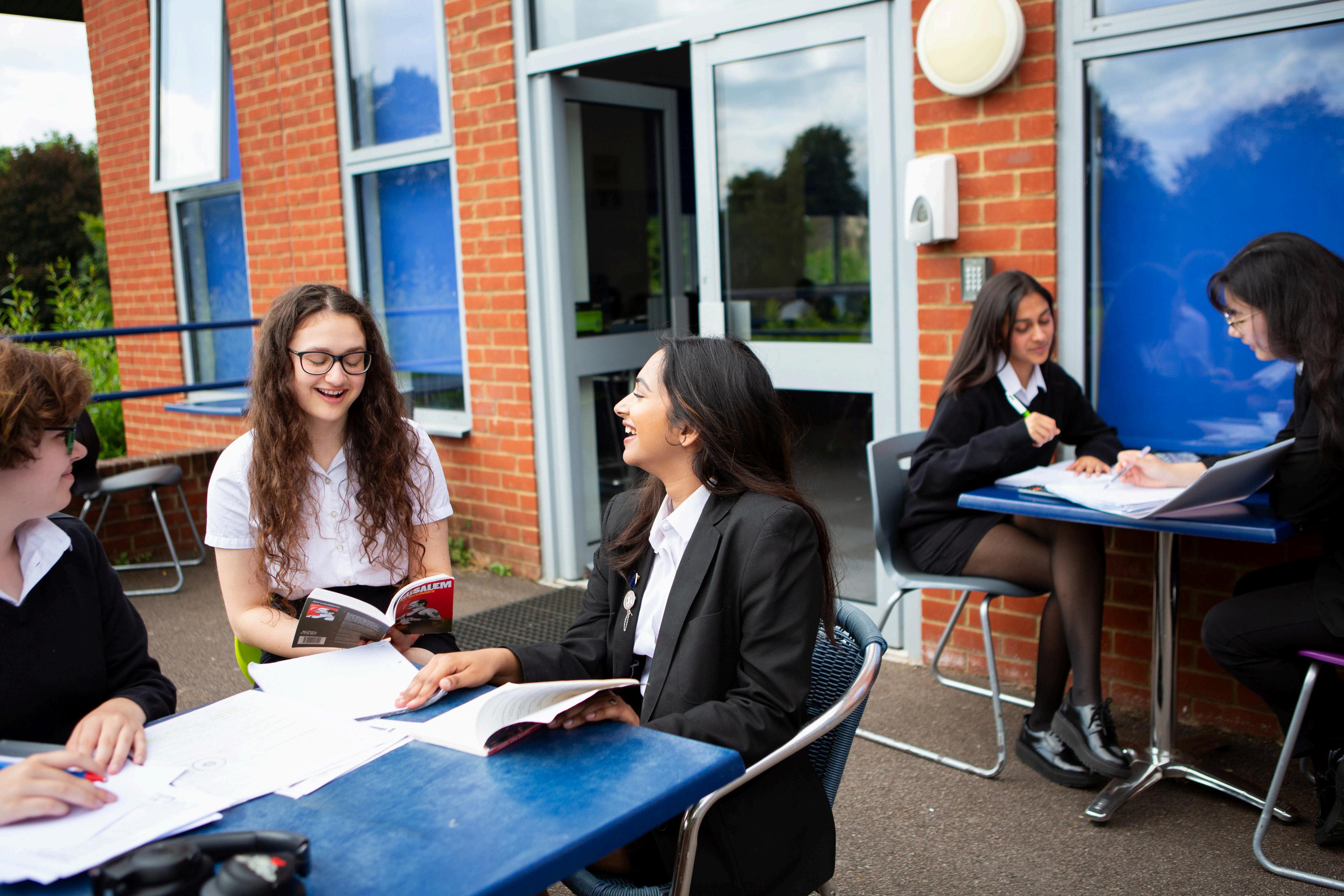
"At this sixth form we strive to create a strong sense of community. You meet and work with lots of different people, some of whom will become your best friends.”
As a girls’ school with a proud history, we striveto empower our community to become innovators, drivers of changeand leaders to create amore equitable and sustainablesociety.
To empower students to become innovators, drivers of change and leaders by:
participating in academic endeavour and making outstanding progress developing an enduring passion for learning. being respectful and kind towards others, having an open and tolerant mind. being able to understand and make moral judgments. being mindful of their well-being and that of others. living by the maxim ‘I can do it and I will do it!’
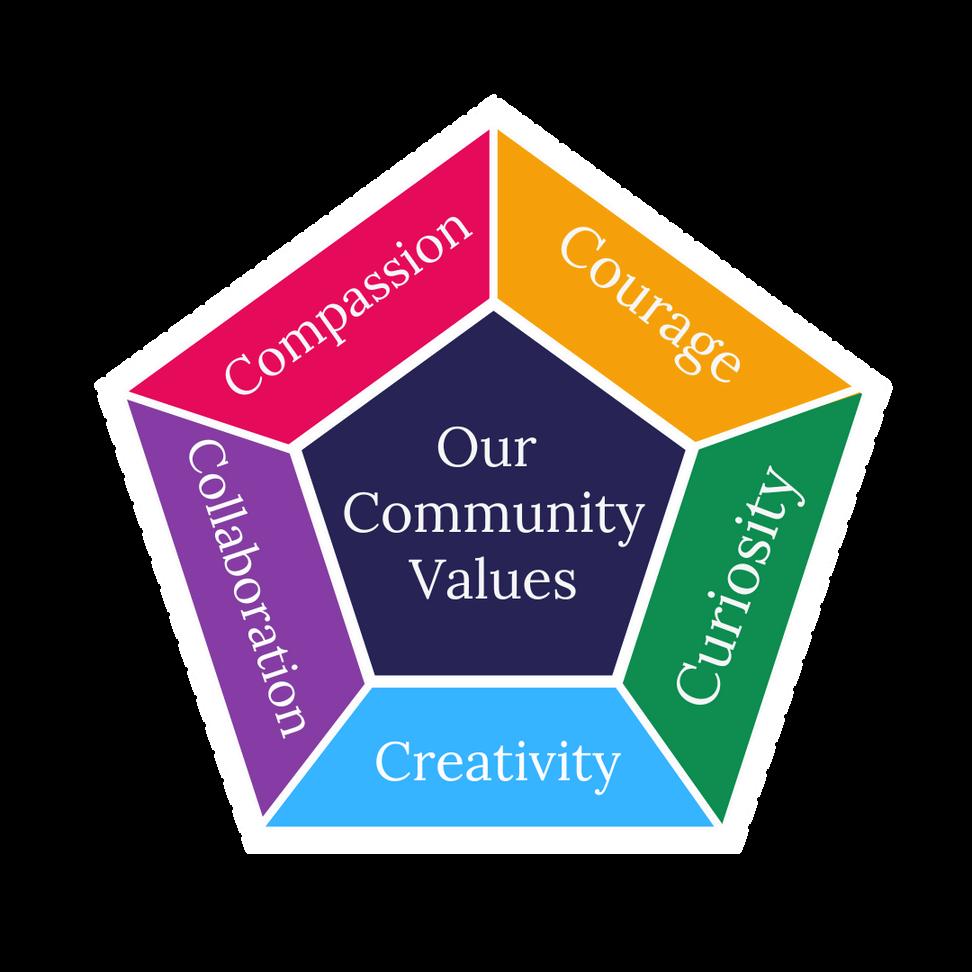

"I have enjoyed getting to explore my chosen A level subjects in greater depth and really pushing myself academically.”
Our A level teachers are subject specialists, experts in their field, with a passion that is evident in all that they do They deliver inspiring, challenging and highly academic teaching, tailored to the individual needs of the students A Watford Girls’ lesson requires students to ask difficult questions of themselves and others, to take intellectual risks and to rigorously engage with their A level subjects. We value the positive relationships that we have with our students, which enable them to develop as young women, with limitless potential.
We are always focused on supporting all of our students in making that next step, whether it be to a traditional university, degree apprenticeship, music conservatoire, art college, or the world of work
We have a wide range of academic A levels to choose from and each one allows our students to develop their expertise and passion, with a real focus upon transferable skills, which will support their future work in both the academic and professional spheres.
All students study three A level subjects and students are able to broaden their educational experience by either studying a fourth subject for two years and sitting the A level examinations or in some cases for just one year and sitting an AS examination. In Year 12 many students also complete the Extended Project Qualification which allows them to undertake independent study in an area which interests them, outside their formal A level lessons Research shows that this development of vital research skills in Year 12 does have an extremely positive impact upon academic achievement in Year 13
We fully understand the importance of our students being able to gain experience of leadership, to develop the skills that young women need to move forward and there are so many ways in which this can be achieved We are very proud of our Head Girl Team and prefectural body: we have a Head Girl, three Deputy Head Girls and a Sports Captain and Music Lead who are supported by a team of senior prefects who all have specific responsibilities for different aspects of school life. All sixth form students will be asked to step up over the course of their two years with us, to lead by example and also to play an active part in the activities and events which make our Sixth Form so special and unique This is recognised in the sixth form uniform which is distinct from the rest of the school, reflecting their seniority within the school community, as young adults ready to face the challenges of this global society.
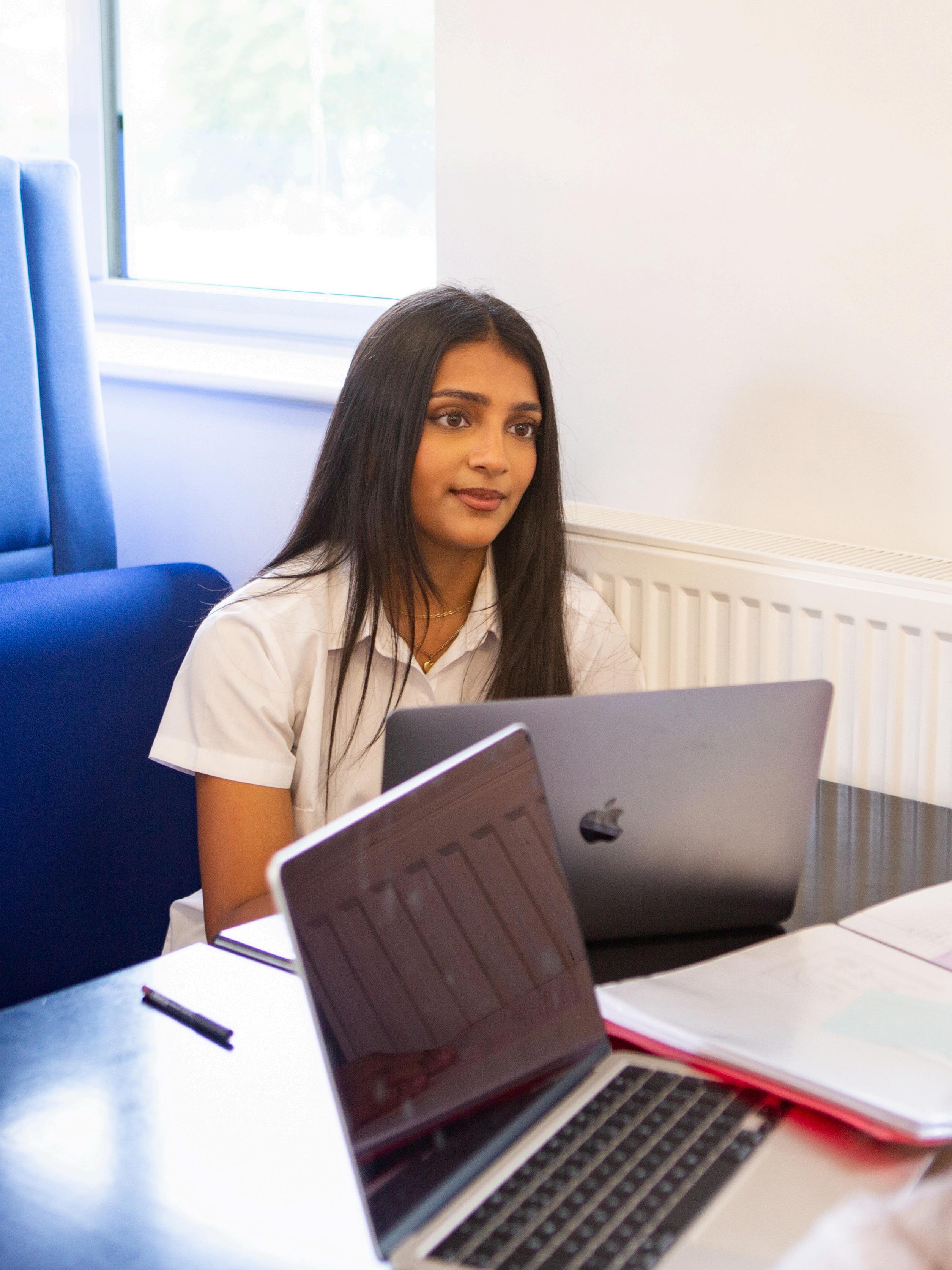
"When I came to the open evening for the first time, the sixth form centre immediately appealed to me and I knew this is where I wanted to come."
We care deeply for the wellbeing of all our students, physically and emotionally and place that at the centre of all that we do: students who are happy and well, are the students most likely to achieve Every student is allocated a form tutor and a tutor group at the beginning of Year 12: the tutor remains with the students for the two years that they are in the Sixth Form and has prime responsibility for the their guidance and welfare. In addition there is an Assistant Headteacher who is also Head of Sixth Form, Heads of Year 12 and 13 and two Sixth Form Administrators available to support students Time spent with the form tutor allows students to regularly evaluate their progress and set academic targets Form time allows students to socialise with one another, making new friends and discussing issues and events of the day, ensuring that they are well rounded and active members of society. There is also dedicated support for external students as they integrate into their new school environment
There is a strong network to support any student who might be experiencing difficulty with her wellbeing: we do not distinguish between the physical and the psychological, focussing at all times on helping students deal with the challenges with which they are faced, with a team of specialist staff, the Medical Officer and the School Counsellor. All students should be reassured that there is no stigma attached to discussing mental health and wellbeing and we encourage students to do so, however small a concern might seem
In form groups and as a year group we address wellbeing on a regular basis, our aim being to enable students to understand how good physical and mental health can be achieved and maintained We also invite external speakers into the school to ensure that students are aware as to how they can access help and support when needed The school is part of the Mental Health Foundation Peer Educators Project, in which Year 12 students are trained to act as peer counsellors for the younger years.
The Tennet Centre, located adjacent to the Main Building is our purpose built Sixth Form block, a space which has a light airy atmosphere We have both collaborative and silent study facilities and a dedicated common room with its own café, where it is possible to buy coffee and an array of delicious snacks. Being set apart from the rest of the school helps to promote and maintain the Sixth Form’s distinct identity and allows students to work independently and take responsibility for their own learning

"Our teachers, who are experts in their subjects, are always on hand to help us to realise our goals. They are approachable and passionate, which means that we always feel supported in our learning."
In order to ensure that we are able to offer as broad a combination of subjects as possible, in viable groups, we run some of our subjects in conjunction with Watford Grammar School for Boys. The lessons take place either on their site or here at Watford Girls and the timetable is specifically written to accommodate for students having to travel between the two sites
We are very proud of Forum, a bespoke programme unique to Watford Grammar School for Girls, which scaffolds and extends all that goes on in the classroom and the wider world, in addition to preparing our students for the moment that they leave the school to embark upon the rest of their lives and of course promoting good mental health and wellbeing.
Applying to university, college, training or employment is at the centre of all our students’ minds and we offer superb support, ensuring that at all points of the process, our students are clear as to what they need to be doing and providing the careers education and advice they need to make the right choices. Students are assisted in any preparations for university admissions tests and those who choose to apply for Art Foundation courses are given help by the Art Department with the completion of applications and assembly of portfolios
One of the most important pieces of equipment required to deal with life outside of school, is a moral compass, which is why we place so much importance on discussion related to ethics and ethical behaviour. We know that our students will be playing important roles in the societies in which they live and work which is why we prepare them for the many difficult decisions they will surely have to make
To operate in the world and sometimes change it, you need to understand it, so we seek to ensure that our students have a firm grasp of important global issues and current affairs.
In lessons, students will be expected to do so much more for themselves, to increase independence and autonomy so in Forum we will be focusing upon these essential study skills, which are also life skills
A key event in Year 12 is FACE the Future – Focus and Action on Careers and Employment – a day dedicated to next steps with our prestigious alumnae as key note speakers, panelists from different professions, colleges, businesses and organisations followed by a series of practice interviews
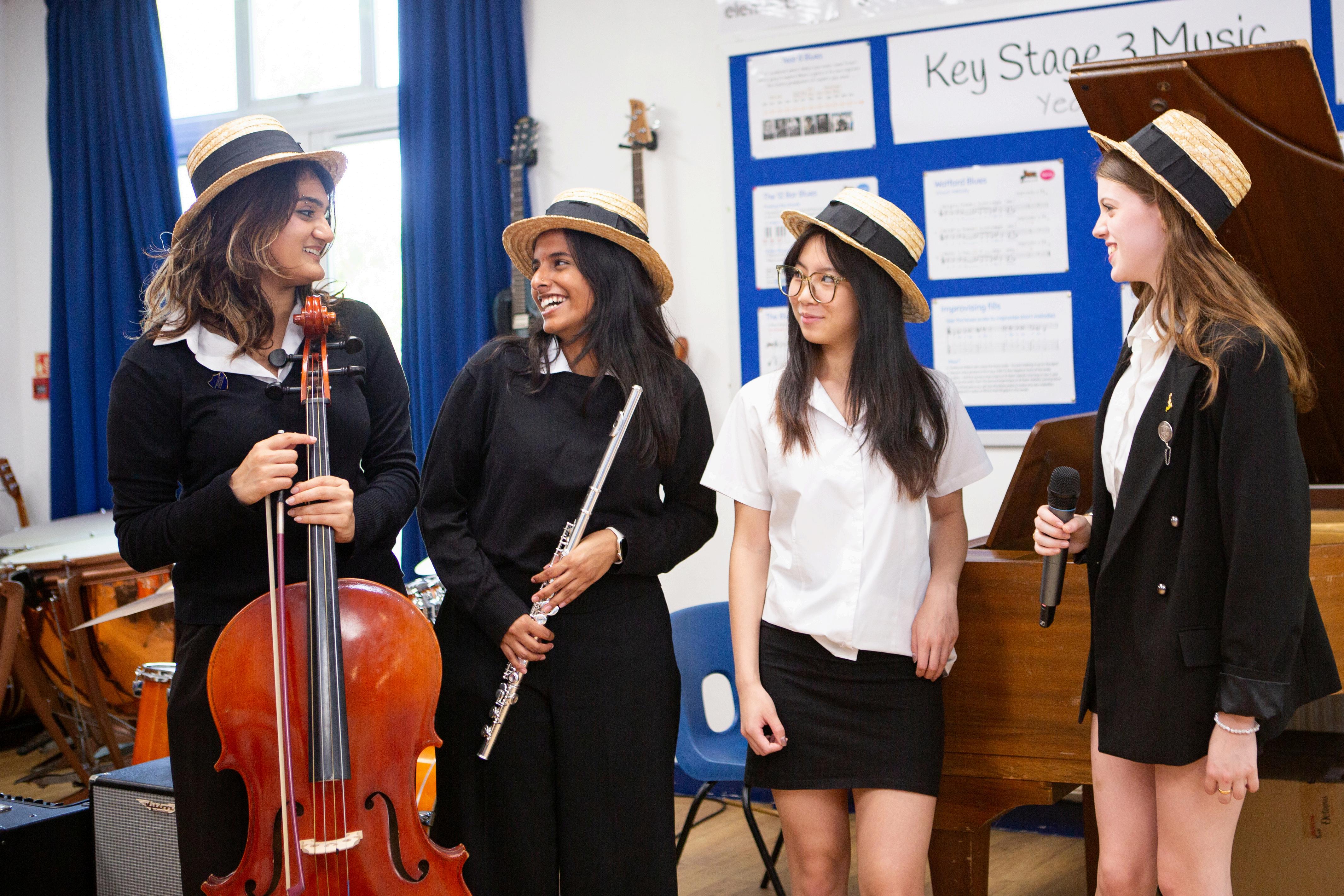
"The ability to express yourself and share your views is one of the things I love most about our sixth form, and the community we have here as a school is supportive and friendly."
Many subjects arrange for students to attend enrichment activities outside school, such as lectures, visits, study days and field trips Year 12 students help to run a large number of thriving clubs for junior students and also act as ‘study buddies’ for the younger girls to help support their learning. The Sixth Form has its own very active societies such as the Government and Politics Society (GAPS) and Medical Society and students are encouraged to set up new societies to reflect their own personal interests The school takes part in regional and national competitions and initiatives, such as the Science Olympiads, Maths Challenges, the Bank of England Target 2 0 Interest Rate Challenge, Young Enterprise and a variety of subject based essay competitions. Year 12 students regularly attend the prestigious Eton Universities Summer School.
Physical Education is very important at WGGS There is a wide variety of clubs, teams, practices and activities available to sixth form students As well as competing at regional and national level in a range of sports, there is the opportunity to take part in displays and performances and to take advantage of the facilities at the school’s Fuller Life Health and Fitness Centre. In addition, students are encouraged to help with junior activities, particularly at lunchtime and after school Many sixth formers also take part in the Duke of Edinburgh Award Schemes
Music remains at the heart of Watford Grammar School for Girls and our thriving Music Department enjoys an excellent reputation. There is joy and solace with those engaged within the musical life of school and the department offers a wealth of activities popular with the Sixth Form, such as Senior Choir, several orchestras, Big Band and various chamber ensembles
Community service is at the heart of the school and spearheaded by the Sixth Form. Year 12 students arrange extraordinary Christmas hampers for local care homes. These are thoughtfully crafted by the forms and delivered to the care homes by our Year 12 students – this enables them to develop a strong sense of giving, leadership and teamwork Year 13’s key event is the promotion and organisation of the annual Harvest festival and the distribution of the goods which have been collected, to the more deserving members of our Watford community.

"The wider WGGS community offers support and guidance during our time here and after we leave, we always have a connection to the school."
Old Grammarians are a dynamic group of past students, teachers, support staff, parents and governors who make up the school’s community Their careers and life experiences span an expansive array of industry sectors Whatever their age, there is an instant bond amongst OGA members and an amazing willingness to support each other
We have a dedicated team and website to support the OGA and all Watford Girls are encouraged to join this network of over 2000 members Our OGA website offers a safe and secure environment for our WGGS alumnae to stay in touch, connect and communicate: https://www oga wggs org uk/
A key event in Year 12 is FACE the Future - Focus and Action on Careers and Employment It is an innovative day where our students can practice interviews given by visitors from different professions. Many of our visiting interviewers are from the OGA who return to support the Sixth Form in their preparations for life after Watford Girls

We are proud of the school's history and heritage which is rooted in philanthropy. Dame Elizabeth Fuller founded the Watford Free School, as it was originally called, to ensure poor children were given the chance of an education
Today, the school is proudly supported by The Women of Vision Trust (registered charity number 1069040). The Trust was established in 1998 specifically to enable maintenance of the school buildings and amenities, ensuring outstanding educational achievement is upheld. This has been realised by encouraging donations from parents, alumnae and friends of the school
The Trust has been pleased to fund some large-scale projects around the school such as the build of the Tennet Centre, the home for Sixth Form students. The Sixth Form Centre is one of the most integral parts of life as a Sixth Former at Watford Girls.
Whether it be for studying, socialising or for holding lectures and lessons, the Tennet Centre offers the perfect space for Sixth Formers.
Click here to find out more about The Women of Vision Trust: https://thewomenofvisiontrust org/

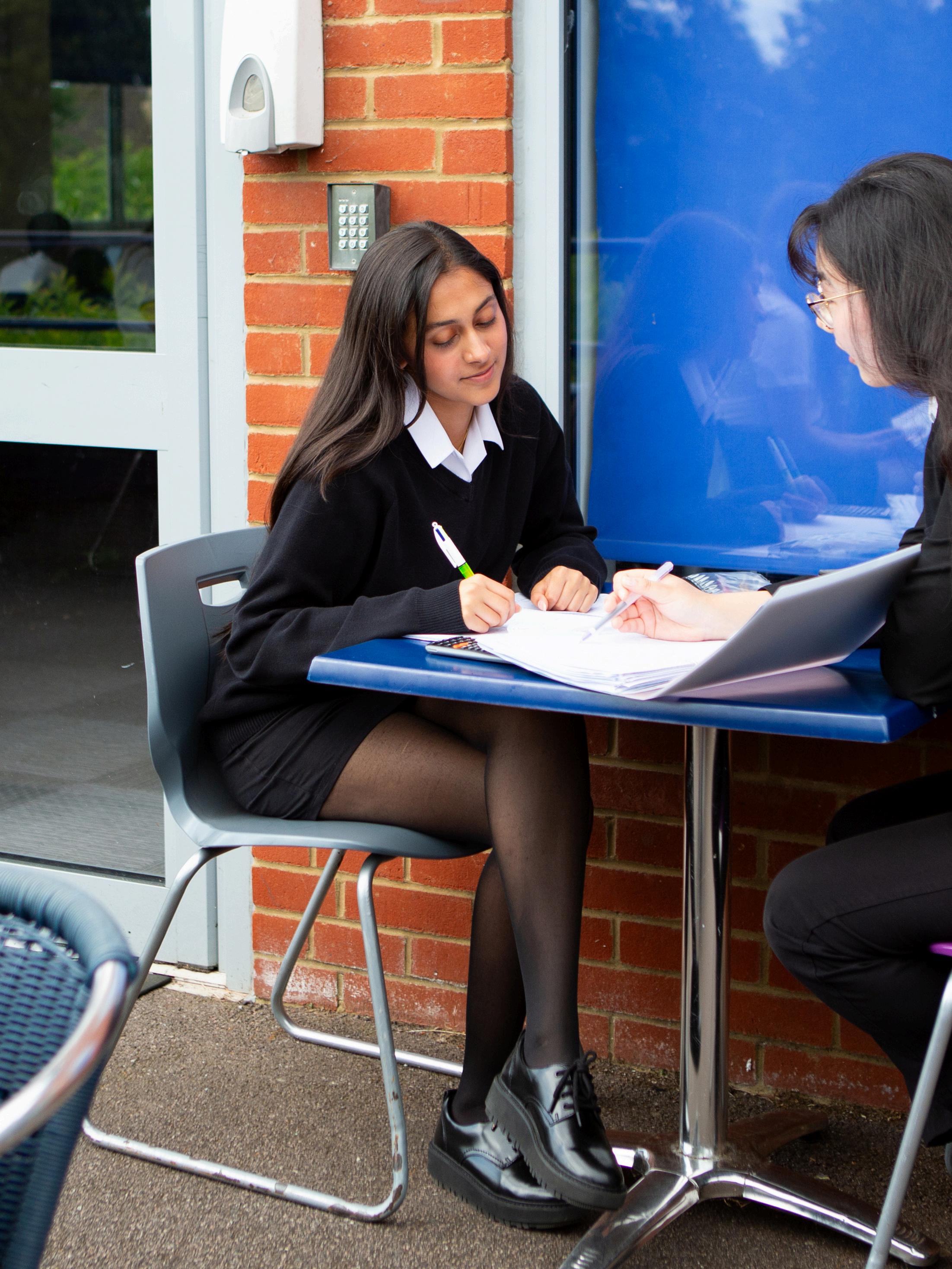
"The opportunities for development within sixth form life are endless; you can step up and take responsibility through the vast number of extracurricular activities that are available."
The Sixth Form is an academic sixth form offering a wide range of A level subjects. The school does not offer vocational qualifications
Students wishing to join the Sixth Form must meet the entry requirements, they must have:
a minimum of 46 points in their best 8 GCSEs (see below for information about how we calculate the points).
Grade 5 in either English Language or Literature and grade 5 in Mathematics.
They must also meet the individual entry requirement for all of the subjects they intend to study.
All students will choose three A level subjects Students who wish to broaden their curriculum may do so in the following ways:
By choosing a fourth subject Students may wish to pursue this for the full two years in the Sixth Form, and gain an A level qualification. Alternatively, they may wish to study the fourth subject for one year only and then take an AS level in that subject. If students wish to study a fourth subject, they must choose a subject in which an AS is offered They will have the option of taking this AS at the end of the first year if they wish, and then continuing with just three subjects in Year 13. Students will only be allocated a fourth subject if spaces are available in the subject they wish to study
By applying for the Extended Project Qualification.
Students may wish to study one subject that comes from a markedly different mode of study from the others selected; for some university courses, additional breadth is positively beneficial. It is important, from a specific career point of view and from a broader educational perspective, that Science graduates can communicate and are perhaps able to speak another language, and that Arts and Humanities graduates can think logically and are reasonably numerate. Much of the advice from universities encourages breadth of study, though none makes a contrasting subject compulsory
For all courses, school examinations and tests will be set at appropriate times throughout the courses.
For reformed subjects with numerical grades, the grade is the number of points – a GCSE grade 5 is worth 5 points.
For unreformed GCSEs, we use this conversion: A* = 8; A = 7; B = 6; C = 5; D = 4; E = 3; F = 2; G = 1

"We have outstanding facilities, including our Sixth Form block, which has a large study area, classrooms, lecture theatre, and a communal Café area."
Although experience shows that most of the courses below will operate, the school cannot guarantee to run a course for which there is insufficient demand nor guarantee all first choices
The * next to the name of a course in the table indicates that an AS may be taken in this subject if it is being studied alongside three other subjects
Art: Fine Art
Art: Textiles
Classical Civilisation
Computer Science
Core
Economics
English
French**
*(AS may be taken in this subject)
**(taught in partnership with WBGS)
Geography Government
Psychology Religion,
Sociology History Science
Biology Chemistry Physics*
The Sixth Form courses present an opportunity to study a balanced range of subjects, and you should seek to secure breadth and balance in your choices. The following link provides advice, information and guidance from the Russell Group of universities on choosing facilitating subjects
Oversubscribed Courses
We anticipate that in the event of a course being under subscribed or oversubscribed, all the students concerned will be asked to reconsider their choices Subject combinations, GCSE results (particularly those relevant to the course concerned) and future career plans will be taken into consideration The final decision on places to be offered will be taken by the Head of Sixth Form together with the Heads of the Departments concerned.
Students wishing to join the Sixth Form must have a minimum of 46 points in total from their best 8 GCSEs and grade 5 in either English Language or English Literature and grade 5 Mathematics
Subject Minimum Subject/Grade Requirements: If not studied, must meet the following requirements:
Art: Fine Art
Art: Textiles
Classical Civilisation
Grade 6 in either Fine Art, Graphics, Photography or Textiles.
Grade 6 in either Fine Art, Graphics, Photography or Textiles
Grade 6
Grade 6
Grade 5
Grade 6 in Mathematics and English Language or English Literature
Grade 6 in English Language or English Literature
Grade 6
Government & Politics
History
Grade 6 in English Language or English Literature and 6 in a Humanity subject
Grade 6
Grade 6 in another Visual Arts subject or Portfolio of Work (subject to HoD approval)
Grade 6 in another Visual Arts subject or Portfolio of Work (subject to HoD approval)
Grade 6 in English Language or English Literature and 6 in a Humanity subject
Grade 5 in Mathematics
Grade 5 in Mathematics - will need to study Core Mathematics
Grade 6 in a Humanity subject and 666 in Triple Science or 66 in Combined Science
Grade 6 in English Language or English Literature and 6 in a Humanity subject.
Subject Minimum Subject/Grade Requirements:
Latin
Mathematics*
Further Mathematics*
Grade 6 Latin and 6 in English Language or English Literature
Grade 7
Grade 8
Modern Languages - Grade 6 in chosen language
French, German and Spanish
*AS may be taken
If not studied, must meet the following requirements:
Sociology
subject
Grade 6 in GCSE music and 5 in either ABRSM or Trinity
Grade 6 in Design & Technology or 6 in a Visual Arts subject
Grade 6 Mathematics and grade 6 in English Language or English Literature and grade 6 in a Science.
Grade 6 RS and grade 6 in English Language or English Literature
Grade 6 in English Language or English Literature and 6 in a Humanity subject
Grade 5 in Mathematics - will need to study Core Mathematics
Grade 6 in a Humanity subject and grade 6 in English Language or English Literature
Have you got lots of creative ideas and a range of skills? Do you like to set and explore your own brief? If so, then this is the course for you! Within this flexible and diverse course you can explore a huge number of skill areas; these could include painting, drawing, illustration, collage, 3D work and mixed media This will develop and extend existing skills You will be taught all the skills you need to use during the first term of the course
You need at least a grade 6 in Fine Art, Graphics, Photography or Textiles. Occasionally a personal portfolio of work can be used to prove ability
Students may need to purchase some materials for this course
The aims of the course are for students to develop skills and confidence across a range of exciting processes and techniques including: felting, experimental photography, mono printing, silk painting, oil painting, design, life drawing, three dimensional design, clay work, alginate casting, relief work, illustration and large scale painting and drawing Students will also refine a mature and critical understanding of art history and art genres, and learn how to critically evaluate and research historical and contemporary artists, designers, illustrators and photographers Their observations and insights on the art world, and exhibition visits, will be recorded in a critical research journal which is an informal ‘arty diary’. All other work is generated in a sketchbook format, and as ‘outside of book’ pieces, and presented as a final portfolio and exhibition display
The two year course includes several weeks of creative skill acquisition and then students select their own artists and starting points, stemming from a general umbrella theme The course is therefore largely dictated by the student, which allows a huge amount of creative freedom Students select their own artistic influences and develop original and inventive outcomes including: huge paintings, mixed media pieces, reclaimed furniture, illustrated shoes and clothing and large scale collage and sculptural work.. In Year 13 pupils also select their own themed focus and develop 2D and 3D outcomes relating to their chosen topic
The portfolio project is also complimented with excursions to inspiring sites and exhibitions including the Wallace Collection where students have a private viewing of the collection and participate in a life drawing workshop
Fine Art is a highly creative and versatile subject which encourages students independently to generate and explore their own themed ideas and outcomes and develop the skills that most interest them. The course will complement any combination of academic subjects as it offers valuable skills in lateral thinking and time management. Increasingly, as students have to prove that they are well rounded and adaptable, an A level in Fine Art perfectly meets this expectation Previous Fine Art students have successfully proceeded to Degree courses in English, Architecture, Mechanical Engineering, Theatre Design, a design apprenticeship for Dyson and Shoe Design Career destinations have included Liberty London, the National Theatre and working as a photographer for London Fashion Week
Do you have experimental skills and creative ideas? Are you innovative, passionate about fashion, textiles, interiors, costume? Then this is the course for you! This exciting and versatile A level course allows progression from all GCSE Art subjects. The fashion and textiles staff introduce you to contemporary and exciting techniques from the commercial art world and you will be taught all the skills you need to use during the first term of the course
You need at least a grade 6 in Fine Art, Graphics, Photography or Textiles Occasionally a personal portfolio of work can be used to prove ability
Students may need to purchase some materials for this course
Textiles is a highly creative subject which encourages students to independently generate and explore their own themes, ideas and outcomes The course will complement any combination of academic subjects as it offers valuable skills in self–confidence, selfexpression and creativity
Previous students have successfully proceeded to degree courses in Printed Textiles, Merchandising, Fashion Buying, Costume Design, Theatre Design, Visual Merchandising, Shoe Design, Architecture, Bridal design/construction and Fashion Textiles In addition to this, they have gone on to secure valuable internships and amazing careers in Liberty London and the Cath Kidston print design studios, pattern cutting/coat construction on Saville Row, fashion design at Ted Baker, Karen Millen, Vivienne Westwood and Calvin Klein, Harry Potter costume design and making costumes for the National Theatre. These contacts provide us with great opportunities for work experience, workshops and career guidance when we invite former students back to the school to offer their advice and experience to our current students
The A level course is separated into 2 themed units
Unit 1, the coursework unit is an open theme/choice which is largely dictated by the students which allows a huge amount of creative freedom Students are encouraged individually to select their own design influences and develop original and inventive textiles outcomes which have included wall hangings, garments, accessories, chairs, dolls, shoes and textile installations to name a few.
Unit 2 is an externally set topics/themes set by AQA, the examining body. Students have around 12 weeks preparatory time to explore the topic chosen, with guidance from their teachers and the project concludes in a 15hour examination.
The coursework portfolio and exam units completed in Year 12 and 13 are complemented with excursions to inspiring sites and exhibitions including the Knitting and Stitching show and other local exhibitions or on site
The aims of the course are for students to develop skills in a range of exciting processes and techniques including: felting, quilting, appliqué, screen printing, machine embroidery, batik, dying, plastic melting, creative photography, experimental textiles, weaving, knitting, mono-printing, stamps, stencils, quilting, silk painting, paper making, and dry felting You will learn how to critically evaluate and research a wide range of contemporary and historic fashion and design influences, and will summarise these observations in sketchbooks, and your critical research journal.
Classical Civilisation is about humanity For over 2000 years it has offered us the most enduring and deeply felt reflections on what it means to be a human being The subject does not promise to provide answers, but through reflection on two of the greatest societies in history you will broaden your outlook on life and develop a greater understanding of your place in the world. Involving the study of history, literature, society, philosophy and art, Classical Civilisation is the ultimate multidiscipline subject
Students are required to have obtained a 6 in English Language OR Literature No prior qualification in Classical Civilisation is necessary, but students who have taken the subject at GCSE must achieve at least grade 6 Students must have a grade 6 in any other humanity subject if they have not studied Classical Civilisation at GCSE.
Students are required to purchase their own textbook(s) for this course.
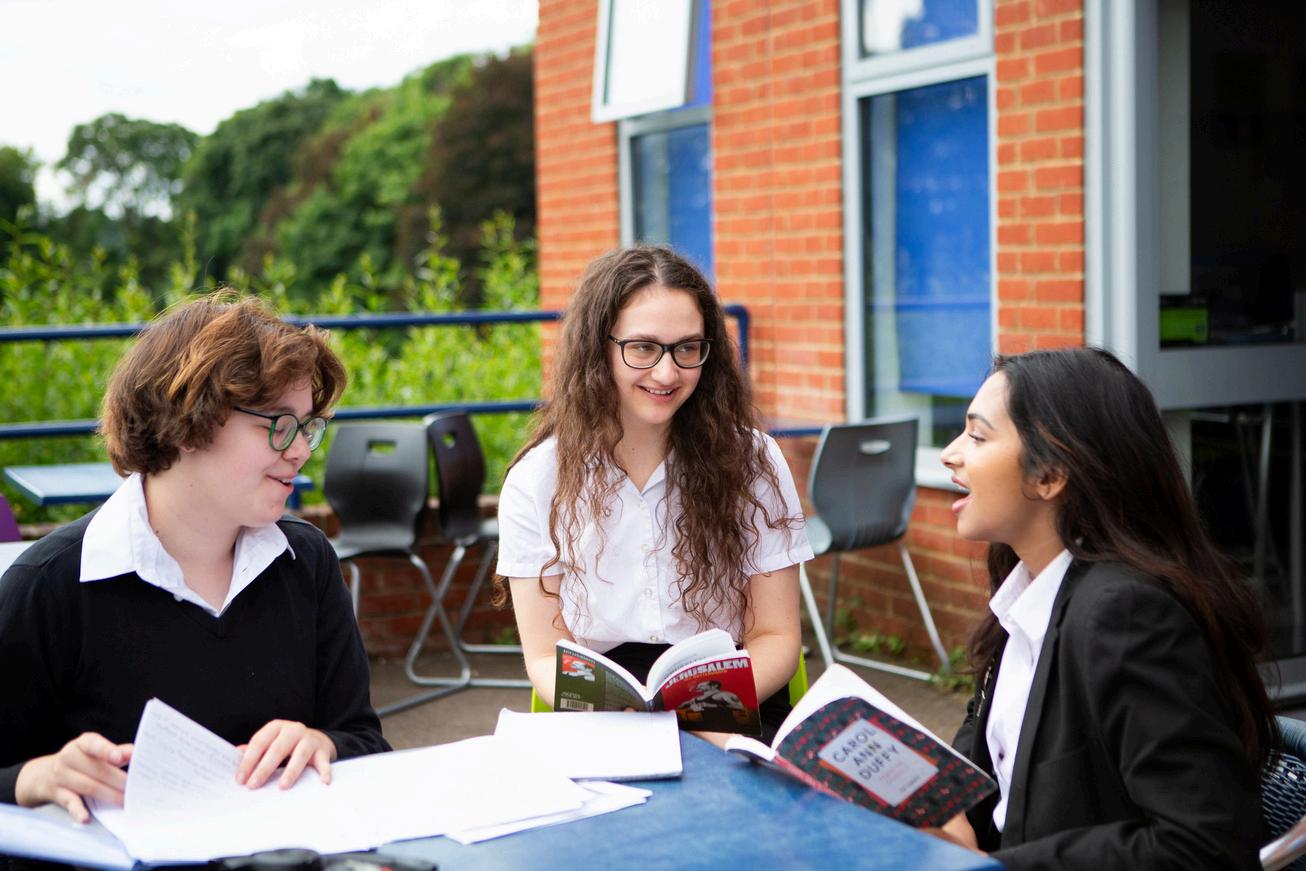
Further Information: Ms H Long
The World of the Hero: An in-depth study of Homer’s Iliad and Virgil’s Aeneid, two of the most influential and enduring works of epic literature from the ancient world You will look closely at literary techniques and composition, and reflect upon how these works shaped the value systems and thought processes of subsequent literature and societies You will explore the timeless concepts of justice, fate and the role of the gods against a backdrop of magical realism and the fascinating contemporary political context of the times they were written in.
Greek Theatre: A comprehensive study of Greek drama, using source material including literature, visual and material culture Not only will you learn about why drama was so important in Greek society, but you will also discern links between ancient customs and their more modern cousins. You will read three plays in depth: the tragedies Oedipus the King by Sophocles and the Bacchae by Euripides; and the Frogs, a comedy by Aristophanes. You will also study representations of drama on a selection of ancient vase paintings, and the archaeological sites of the ancient theatres themselves.
Love and Relationships: Ideas about love and relationships are key aspects of the literature, thoughts and ethics of any society, and by studying those of the Greek and Roman world you will consider ethical questions relating to love, desire, sexuality, gender and marriage that can be equally relevant and applicable to modern society. You will examine thought provoking and stretching concepts by studying the ideas and theories of the ancient philosophers Plato and Seneca, alongside a close look at the societal norms of ancient Greece and Rome A study of love poetry by Ovid and Sappho will provide a different interpretation of ancient love and relationships, with Sappho providing a rare example of the female voice in ancient literature, and Ovid’s controversial poems contrasting with the societal expectations of imperial Rome
The A level course (OCR) is assessed in three written examinations that cover all material taught in the two year course
Classical Civilisation is a respected, multi-faceted course that will equip you with a particularly broad range of skills
The study of ancient literature will enhance your ability to write articulately and hone your analytical skills The study of visual and material culture will provide you with a framework and language through which you can assess all artworks and objects of beauty
The study of philosophy will ensure that you can think critically, argue efficiently and deconstruct arguments This subject will help you stand out and demonstrate to admissions tutors and employers that you are an independently minded and academically curious individual. Students with an enthusiasm for literature or drama are eminently suitable for this course, while those who study the humanities are bound to find some insightful overlap with Classics. It is often a perfect fit for those seeking to add breadth and variety to their options, while it is an excellent starting point for those interested in philosophy.
Lastly, if you are not quite sure what you want to do, not quite sure who you might be, you should definitely study this subject; you might be a Classicist
Classicists are renowned as interesting, engaged people with a broad knowledge base and a wide skill set They tend to go on and do various interesting and rewarding things, such as Publishing, Law, Finance, Journalism, Education, Civil Service, and the Arts
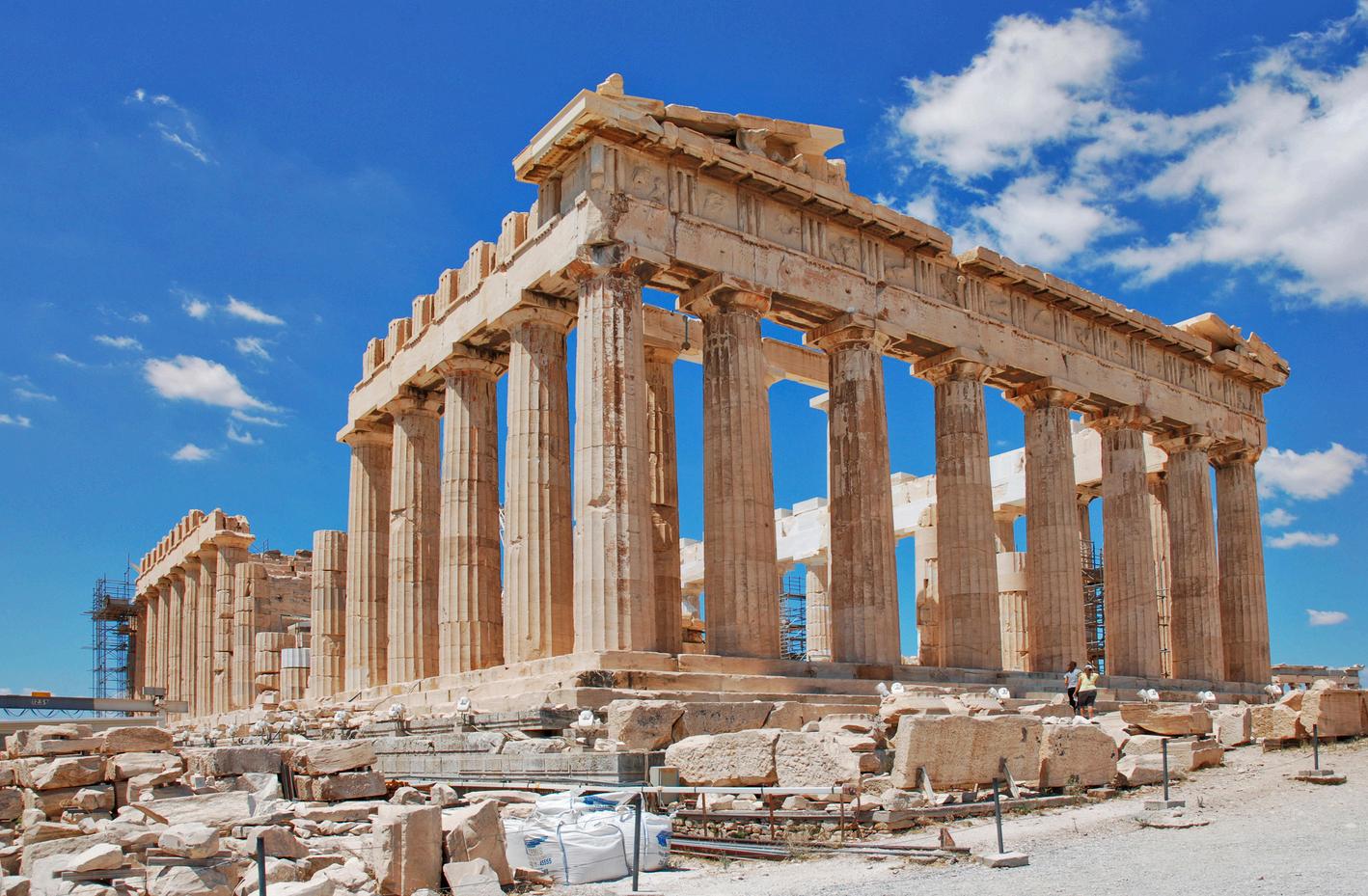
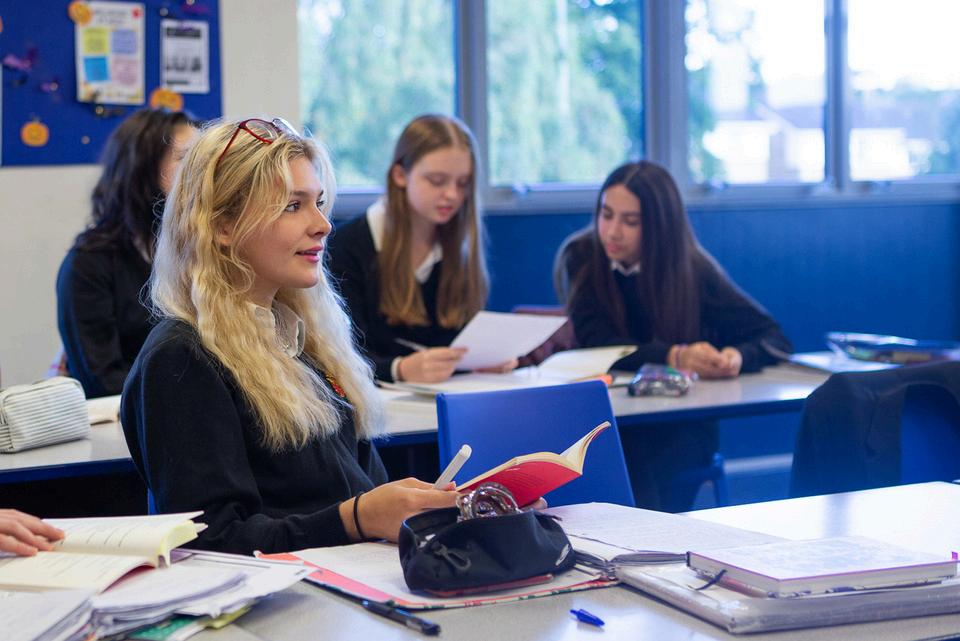
Computer Science has been a fundamental building block of the society we live in today From helping to crack Nazi codes through to the internet and mobile phones it has already contributed much, however, many great challenges lie in the future for Computer Scientists to solve This course, with its emphasis on general problem-solving, programming and a fundamental understanding of how computers work, is an excellent foundation for helping to solve these future challenges The course is split evenly into practical and theoretical work
The practical elements all revolve around learning how to program using the python programming language and solving logical real-world problems. The theory deals with such topics as how computer systems are organised and developed and how a computer organises data. The course is excellent preparation for those students intending to learn a programming language and more than half the assessment is based on your programming skills on the computer Students have gone on to study Computer Science at university, science courses that make use of programming, electrical engineering, and finance
In order to study Computing you must achieve at least a grade 5 in Mathematics GCSE If you did study GCSE Computing we would expect you to have achieved at least a grade 6 in the Computing GCSE – however it is not a requirement that you studied GCSE Computing
Fundamentals of programming
Fundamentals of data structures
Systematic approach to problem solving
Theory of computation
Fundamentals of algorithms
Fundamentals of functional programming
Fundamentals of data representation
Fundamentals of computer systems
Fundamentals of computer organisation and architecture
Consequences of uses of computing
Fundamentals of communication and networking
Fundamentals of databases
Big Data
Non-exam assessment – the computing practical project
Paper 1 - Fundamentals of Programming Exam
This paper tests a student’s ability to program, as well as their theoretical knowledge of Computer Science Students will learn to program in a procedural programming language and will then use this knowledge to solve logical problems and puzzles They will also learn how to structure programs correctly There will be an exam on the computer and it will involve preliminary material, a skeleton program and possible test data that is then used in the exam.
Paper 2 is all about how a computer works. It deals with everything from a technical viewpoint and includes operating systems, how processors work, networking and binary. This paper will involve a written exam consisting of short-answer and extended-answer questions
Non-Exam Assessment
Further Information: Mr A Tibble
There will be an opportunity to create a personal project which will be assessed and will form 20% of the A level This involves a large project where the student plans, designs and implements a program Examples of projects students have made include: 2D strategy games such as Connect 4 and “dots and boxes”, smoke/fire detectors with sensors, automatic robot cars following a track, 3D platform games using real time physics
In the modern world there is a need for us to be numerically literate and able to analyse the wealth of data that we are confronted with This has been particularly true during the recent pandemic, when we have been bombarded by data and graphs In order to help address the need for greater fluency with key mathematical skills the Core Mathematics course was introduced nationally It is an alternative to A level and designed to encourage more students to continue with the study of maths post-16 It is a relatively new qualification (first examined in 2016), but one which is increasing in popularity. The full name of the course is AQA level 3 Certificate in Mathematical Studies.
The course is deemed equivalent to an AS level and is graded A – E Like an AS level, it offers up to 20 UCAS Tariff Points It is increasingly being recognised by universities: The University of Bath, for example, will drop an A level offer by one grade if a student achieves at least a B grade in Core Mathematics (for any course that does not require A Level Maths) Core Mathematics aims to develop different skills to A Level Maths. Much of the mathematical content is at GCSE level, but certain key A level topics are included, such as standard deviation, correlation measures and the Normal Distribution The focus is on applying maths to the contexts students are likely to encounter in everyday life, higher level study and employment
This means that there are particular emphases on data skills, the use of spreadsheets and personal finance (for example mortgages, income tax and student loans) Many A level and Degree subjects contain more mathematical content than students realise, and Core Mathematics is designed to develop the skills required for the quantitative aspect of them
Students will need to purchase an appropriate calculator which can be purchased through the school at the start of the course, which ensures that students buy the right calculator
A levels that would be well supported by the study of Core Mathematics are Biology, Geography, Sports Science, Psychology, Economics and Business Studies
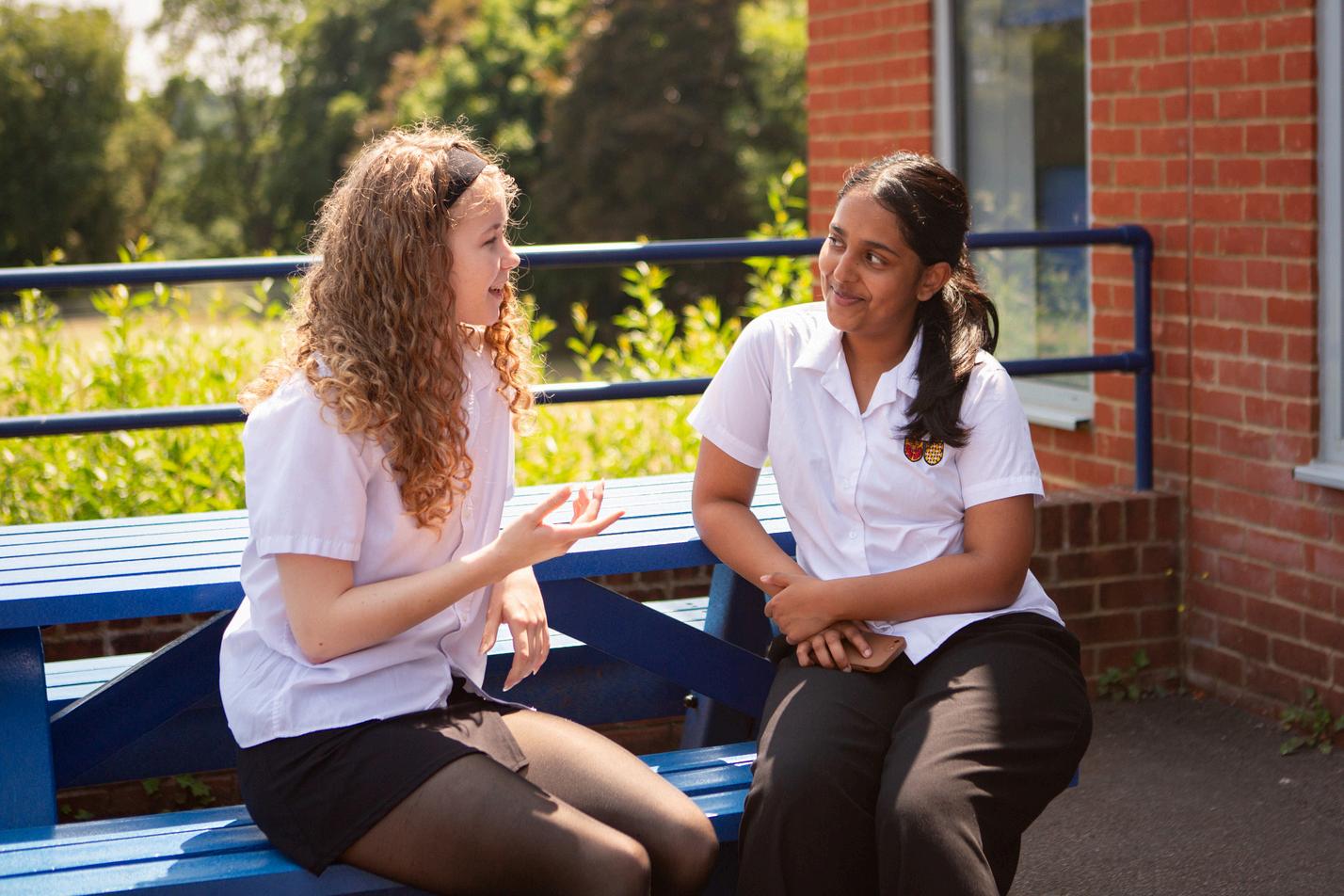
Further Information: Ms S Harris
Pearson
“The ideas of economists and political philosophers, both when they are right and when they are wrong, are more powerful than is commonly understood” John Maynard Keynes
Everyone’s daily lives are affected by economic issues and our A level Economics helps students analyse and think critically about the world around them. It is a prestigious subject inquiry with the rare distinction that a Nobel Prize is awarded annually for outstanding contributions
An Advanced GCE in Economics will introduce you to the effects of economic variables on everyday life for consumers, businesses and governments This qualification is highly valued by universities and will give you enhanced career choice and progression opportunities
GCSE Grade 6 or above in Mathematics and English Language or English Literature
If you achieved a grade 5 in GCSE Mathematics and wish to study Economics, you will need to study Core Mathematics alongside your three A Level choices
Text books and/or resources will need to be purchased by students.
Economics links well with Mathematics, Politics, History, Geography and Philosophy. Career options for graduates include Economist, Banker, Chartered Accountant, Actuary, Statistician, Civil Servant, Education, Risk Analyst
Theme 1: (Year 1) 'Introduction to markets and market failure' - This theme focuses on microeconomic concepts Students will develop an understanding of the nature of economics, how markets work, market failure, government intervention
Theme 2: (Year 1) 'The UK economy performance and policies' - This theme focuses on macroeconomic concepts Students will develop an understanding of measures of economic performance, aggregate demand, aggregate supply, national income, economic growth, macroeconomic objectives and policy.
Theme 3: (Year 2) 'Business behaviour and the labour market' - This theme develops the microeconomic concepts introduced in Theme 1 and focuses on business economics Students will develop an understanding of business growth, business objectives, revenues, costs and profits, market structures, labour market, government intervention
Theme 4: (Year 2) 'A global perspective' - This theme develops the macroeconomic concepts introduced in Theme 2 and applies these concepts in a global context. Students will develop an understanding of poverty and inequality, international economics, emerging and developing economies, the financial sector, the role of the state in the macro economy
Further Information: Mr H-C Wong, Mrs K Chopra
The study of Literature at A level is a broad and exciting journey through the literary canon Reading widely, critically and independently across centuries, genre and gender, there is significant scope for independent study The emphasis of the course will be on your development as an informed, independent reader of literary texts.
Students particularly value the opportunity to select a text of their choice to compare with the taught text for the coursework unit, where you can pursue your own interests by defining your own question Lessons involve lively discussions of key ideas You will learn how to use critical responses to inform your response to texts Our specification adopts a historicist approach
Grade 6 in GCSE English Literature or English Language
Students are required to purchase their own copies of the set texts However, the department provides clean copies of texts for use in final examinations
The AQA (A) specification is broad and engaging with the study of texts spanning everything from the Shakespeare to Margaret Atwood! You will study poetry, prose, and drama from the medieval to modern period
There are two examinations Love through the ages (Paper 1) and Modern times: literature from 1945 to the present day (Paper 2) Together these two examinations contribute to 80% of your final grade.
There is also comparative coursework (NEA) worth 20%. You will study one text in class and will have the opportunity to select a second text of your choice to compare with it
Set texts are chosen by individual teachers, but there will definitely be something for everyone! All classes begin Year 12 by studying The Handmaid’s Tale by Margaret Atwood: a classic dystopian novel written from the perspective of the female protagonist. This is compared with Carol Ann Duffy’s Feminine Gospels. Students study a modern play (Top Girls by Caryl Churchill, or A Streetcar Named Desire by Tennessee Williams) alongside this The most important thing is that you love reading and that you are willing to approach discursive lessons with an open mind and willingness to contribute
To support students, the department subscribes to online journals giving you free access to English Review and EMagazine. They continue short, critical articles on a range of texts including ones we study. In addition, the Library is well stocked with relevant study guides, DVDs of plays, and critical essays available for every unit. The school also provides you with a login for JStor, enabling you to search for relevant articles to support your studies At A-Level you will be taught how to support or challenge the view of literary critics and to develop your own voice both orally and in writing
In Year 13 students are invited to attend the English Symposium at Watford Boys Here they attend a series of mini-lectures and collaborate in lively round table discussions in mixed groups. It is a dynamic literary symposium, developing intellectual curiosity, academic rigour, and analytical depth. We also run an annual thought-provoking A-Level English seminar here, inviting students at Watford Boys to explore the rich landscape of Literary Criticism with our A-Level Literature students The most recent session focused on the practical application of various lenses of critical theory ranging from Marxist and Feminist to Psychoanalytical and Decolonising Our Creative Writing Club is led by Sixth Form students; they produce a monthly publication of their work We also have a new Journalism Club.
Further Information: Ms S Solomons
An A level in English Literature will provide you with an array of highly desirable transferable skills including:
Developing detailed and balanced arguments and sensitivity to how communication is shaped by circumstances, authorship, and intended audience
Sensitivity to the power of language and its role in creating meaning
A broad vocabulary and ability to use critical terminology appropriately.
Skills in the accurate and appropriate presentation of academic work.
The ability to analyse critically and the capacity for independent thought, reflection, and judgement.
The ability to comprehend and develop complex ideas and make good use of research.
As a result, you would be well prepared to apply for a range of university courses from Humanities to Law, International Relations, Advertising and Marketing, Creative Writing, Journalism and more The department provides bespoke support for those wishing to study English, or a related degree at university We have a strong track record of helping students to secure places at a range of prestigious universities, including Oxbridge
Many students choose to study English Literature alongside science subjects; they enjoy the contrast it creates in their timetables English Literature A-Level is a facilitating subject: one of the subjects often preferred or required by top ranking universities Employers also value the strong communication and analytical skills that it demonstrates
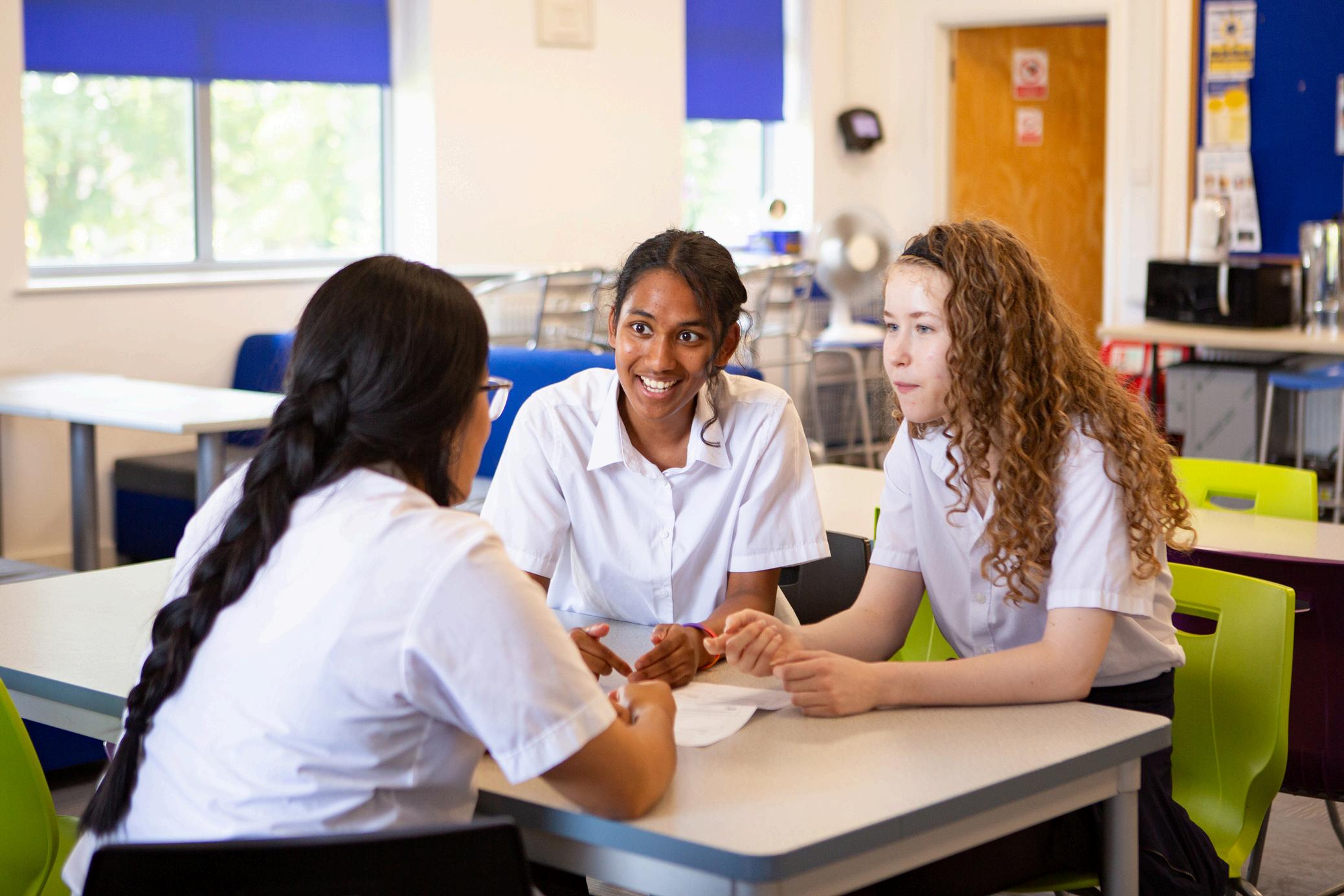
In Year 12 we follow the Edexcel A level course which covers a challenging range of contemporary themes and equips students with the skills they will need to study geography further at university level
As a full A level, students focus on four areas of study which are externally examined in papers 1 and 2 They are also prepared for a synoptic investigation for unit 3 as well as completing an independent investigation as a piece of coursework.
The programme of study has a traditional physical/human split and will be delivered by two members of the geography department
Area of Study 1:
Topic 1 – Tectonic processes and hazards
Topic 2 – Landscape systems; coastal landscapes and change
Area of Study 2:
Topic 3 – Globalisation
Topic 4 – Shaping places; regenerating places
Grade 6 in Geography If not studied, grade 6 in a humanity subject and grades 666 in Triple Science or grades 66 in Combined Science Entry Requirements

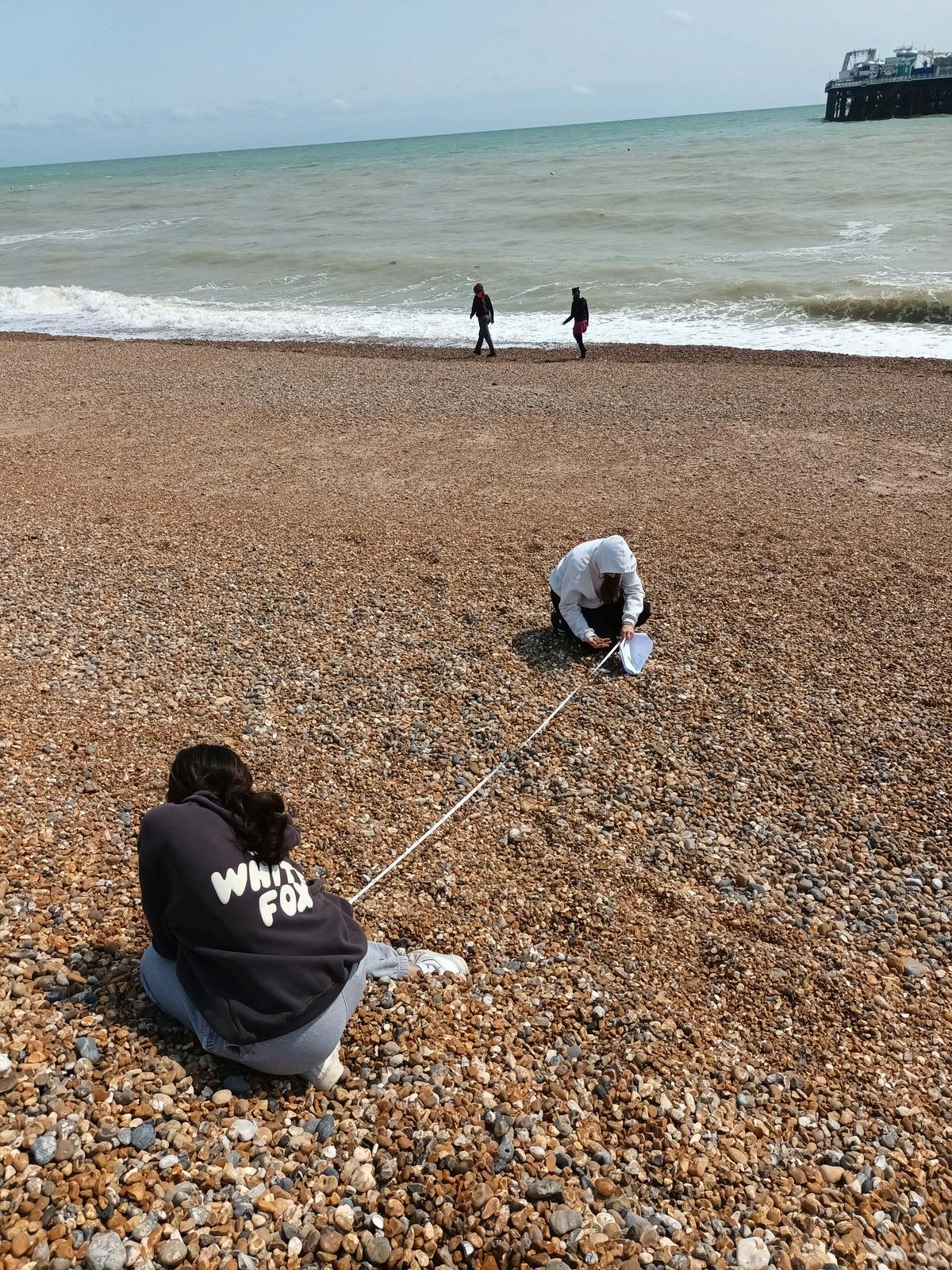
Students are required to undertake compulsory fieldwork as part of their A level A residential trip to Brighton will take place in the Summer Term Approximate cost - £250
Area of Study 3:
Topic 5 – The water cycle and water insecurity
Topic 6 - The carbon cycle and energy insecurity
Area of Study 4:
Topic 7 – Superpowers
Topic 8 – Health, Human Rights and Intervention
Students will be examined by three externally assessed exam papers at the end of Year 13 as well as one piece of coursework submitted in the winter of Year 13
Further Information: Miss S Andrews
If you’ve ever wondered how and why the decisions that affect your lives are made then this course may be for you It is rigorous, exciting and highly prized by universities This course will appeal to students who:
Want to learn more about politics and how decisions are made in today’s society.
Enjoy investigating ideas and policy issues that affect everyday life.
Enjoy debating issues, ideas and opinions and have a lively interest in current affairs.
Want to study a subject which encourages them to consider evidence and make up their own minds, so developing their analytical and communication skills further
A grade 6 in English Language or English Literature and a grade 6 in a Humanity subject.
Students are required to purchase their own textbook(s) for this course
The Government and Politics department give students wider opportunities to engage in political discussion and debate with regular outside speakers organised by our vibrant Government and Politics Society (GAPS) We also run trips to political conferences, the UK Parliament and Washington DC Furthermore, politics students have written and edited political publications giving them the opportunity to develop their journalistic skills Students in the department also run and take part in school mock elections, run a debate club for students in all year groups as well as MUN society for years 10-13.
This course is designed to develop an awareness of the nature of politics and the relationship between political ideas, institutions and issues, central to an understanding of the modern world It encourages:
A knowledge of the structure of government and power in the UK and the USA within the context of the wider world
The opportunity to engage in contemporary political debates and develop critical awareness of contemporary political events and issues
An understanding of differing political viewpoints and ability to evaluate alternative approaches to political issues
The skills of arguing a case relevantly and coherently.
An awareness of the rights and responsibilities of citizenship.
The skills and knowledge developed in Government and Politics are highly prized by universities and employers as a qualification for a wide range of courses in History, Economics, PPE, English, Languages, Art History, Law, Journalism, Philosophy, Psychology, Sociology, Theology and many more, including Science and Medicine, and, of course, Politics and International Relations.
Government and Politics is a great choice for students who are looking to study a well-rounded combination of subjects It allows students to understand:
How to debate and defend your ideas while respecting those of others
How to research and develop your analytical skills
How to produce balanced and well supported multi-stranded arguments
How to evaluate those arguments and how to arrive at well supported conclusions
Further Information: Dr S Cooke
Studying the ‘human past’ offers students opportunities to deepen their understanding of the ideas, beliefs and motivations of peoples worldwide History provides insight into events and developments that have formed and influenced modern society. History in the Sixth Form focuses on developing important skills such as analysing and evaluating information, summarising and organising ideas, and constructing clear, logical arguments both verbally and in writing These skills are invaluable for students aiming to become effective leaders and achieve future success
These are vital skills for a range of careers like journalism, law, accountancy and management, the civil service, medicine and beyond!
History is ideal for students who:
Have an interest in the way the world has developed through the ages and enjoy investigation and discovery.
Wish to develop their analytical skills, enjoy debate and like putting forward a wellargued case
Want to study a subject which encourages them to consider evidence and make up their own minds
Want to keep their options open or want to combine humanities and science
A grade 6 in History If not studied, grade 6 in English Language or English Literature and a grade 6 in a Humanity subject.
You will be studying topics from the AQA specification This consists of three parts:
The breadth study - The Tudors 1485-1603. The depth study - Revolution and Dictatorship: Russia and the Soviet Union, 1917–1953.
OR
The Depth study - The American Dream: reality and illusion, 1945-1980
The historical investigation - An extended piece of writing from your choice of up to six different wide reaching topics
History is considered a facilitating subject and is highly valued by universities and employers as a qualification for a wide range of courses in Politics, Economics, English, Languages, Art History, Law, Journalism, Engineering, Philosophy, Sociology and Theology. History is a great choice for students who are looking to study a well-rounded combination of subjects.
The History department also gives students wider opportunities within their studies We have also run trips to History conferences, Royal Palaces as well as attending talks by historians about their research These opportunities expands students’ knowledge and engagement in the subject.
Further Information: Dr S Cooke
The study of Latin is not a futile attempt to resurrect a dead language. Instead, Latin is the ultimate foundation of academic endeavour and will equip you with a broad range of valuable skills which are transferable into absolutely any field The A level course will complete your instruction in the language and allow you to study some of the greatest works of western literature in their original form
Grade 6 in Latin and Grade 6 in English Language or English Literature
Students are required to purchase their own textbook(s) for this course
Latin will most definitely set you apart from the crowd It is celebrated for its ability to stretch and challenge young minds, and its value in enabling students to think analytically and write with fluency Opting to study Latin is a statement of intent that will immediately demonstrate to admissions officers and employers that you are a student of academic integrity and intellectual curiosity. Latin acts as a perfect bridge between the sciences and humanities; students predominantly interested in the sciences and maths find the complex linguistic analysis entailed in the subject to be a perfect complement to their skills Students interested in literature or the humanities will find it to be the perfect way to underpin their skill-set and shape their understanding about human existence through the study of literature in its historical context
Further Information: Ms H Long
Linguists gravitate to Latin for obvious reasons, while students who do not fit into any of the categories mentioned above may actually find their spiritual home in the subject. Latinists go on to pursue a wide variety of career paths, including law, journalism and finance. Knowing Latin is of course not necessary for these types of careers, but the skills of lateral thinking that the subject develops are Studying this subject at A Level will definitely open more doors for you
Latin Language: You will deepen your understanding of the linguistic constructions covered at GCSE and broaden your knowledge to cover every remaining aspect of Latin grammar Latin Prose and Verse Literature: You will develop the skills of literary analysis that you learned at GCSE by exploring slightly longer passages of authentic Latin.
Latin Language: You will continue to develop your linguistic skills by tackling unseen translations of authentic Latin literature The examination will require you to complete both an unseen verse and prose translation and to answer some comprehension questions about an extract of Latin
Latin Verse Literature: You will read further extracts of the verse author that you studied in Year 12, thereby building up a fuller picture of the narrative and historical context of the work. Latin Prose Literature: As with the verse paper, you will complete a more in depth study of your prose set text
The A level course (OCR) is assessed in four examinations that cover all material taught in the two year course The two Latin language components are worth 50%, while Verse and Prose Literature are worth 25% each
Students studying Mathematics enjoy its challenge, its clarity, and the fact that correctly deducing the solution of a problem has an excitement and satisfaction all of its own. It is a subject that teaches you to think in a logical way, which is vital when presenting your case in any situation
The course is primarily Pure Mathematics but includes Applied Mathematics elements from both Mechanics and Statistics Mechanics involves looking at forces and how they affect the motion of objects in the real world Statistics involves processing and analysing data, as well as using Mathematical models to predict results and calculate likely outcomes.
Mathematics is all about pattern and structure; it is about logical analysis, deduction and calculation within these patterns and structures Where patterns are found, often in widely different areas of science and technology or business and economics, the mathematics of these patterns can be used to explain and control natural happenings and situations As a result, Mathematics has an extensive influence on our everyday lives and the world around us.
Pure Mathematics : Proof, algebra and functions, coordinate geometry in the (x,y) plane, sequences and series, trigonometry, exponentials and logarithms, differentiation, integration, vectors
Statistics: Statistical sampling, data presentation and interpretation, probability, statistical distributions, statistical hypothesis testing.
Mechanics: Quantities and units in mechanics, kinematics, forces and Newton’s laws
For a student who enjoys Mathematics, following a course in Further Mathematics provides an additional challenge and a chance to explore new and more sophisticated mathematical concepts. As well as learning new areas of Pure Mathematics you will study further applications of Mathematics in Mechanics and Statistics. Students taking Further Mathematics find it an enjoyable, rewarding, stimulating and empowering experience It is a challenging qualification, which extends and deepens your knowledge and understanding beyond the standard A level course Students who take Further Mathematics are really demonstrating a strong commitment to their studies, as well as learning skills that are very useful for any mathematically rich degree
Mathematics A level – Grade 7 at GCSE Mathematics. Further Mathematics A level – Grade 8 at GCSE Mathematics.
Students will need to purchase a calculator appropriate for A Level Mathematics Calculators can be purchased through the school at the start of the course, which ensures that students buy the right calculator
Further Information: Ms S Harris
Mathematics has a huge importance in its own right and in facilitating understanding in other subjects Mathematics is key to the study of the sciences - physical and biological, technology, social and medical sciences It is also the language of business, finance, health and planning
Many other A levels and careers use Statistics extensively, so doing A level Mathematics could give you a head start If you are planning to take a degree such as Engineering, Sciences, Computing, Finance/Economics or perhaps Mathematics itself, you will benefit enormously from taking Mathematics or Further Mathematics at A level
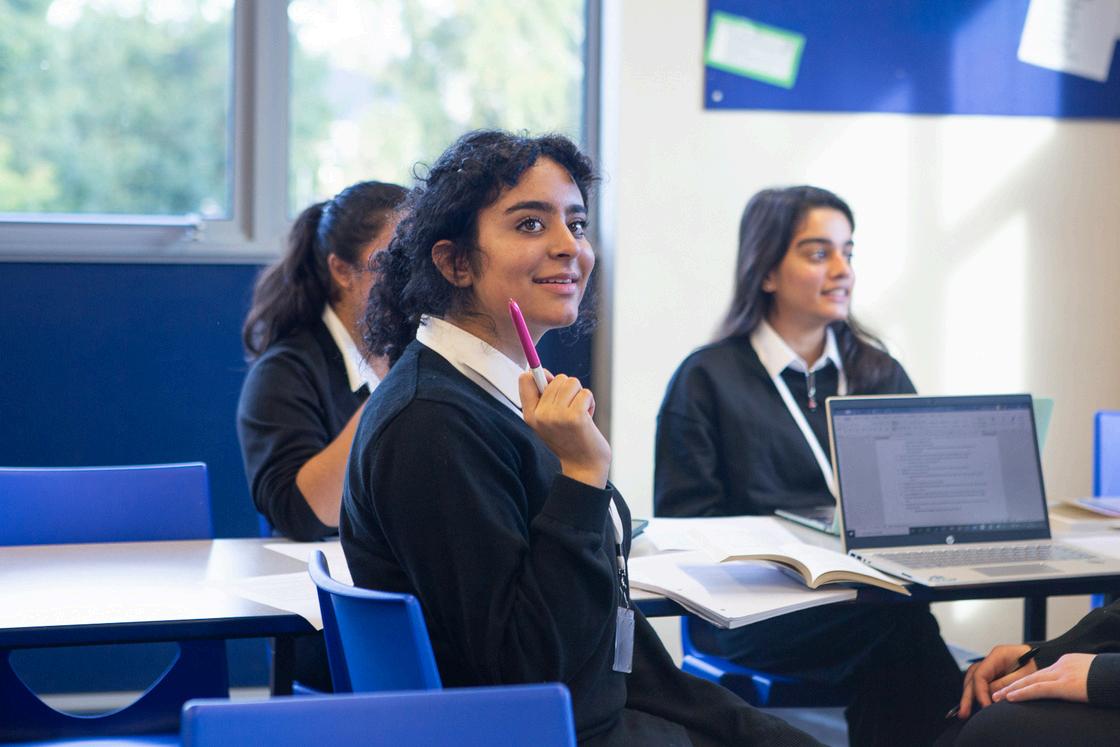

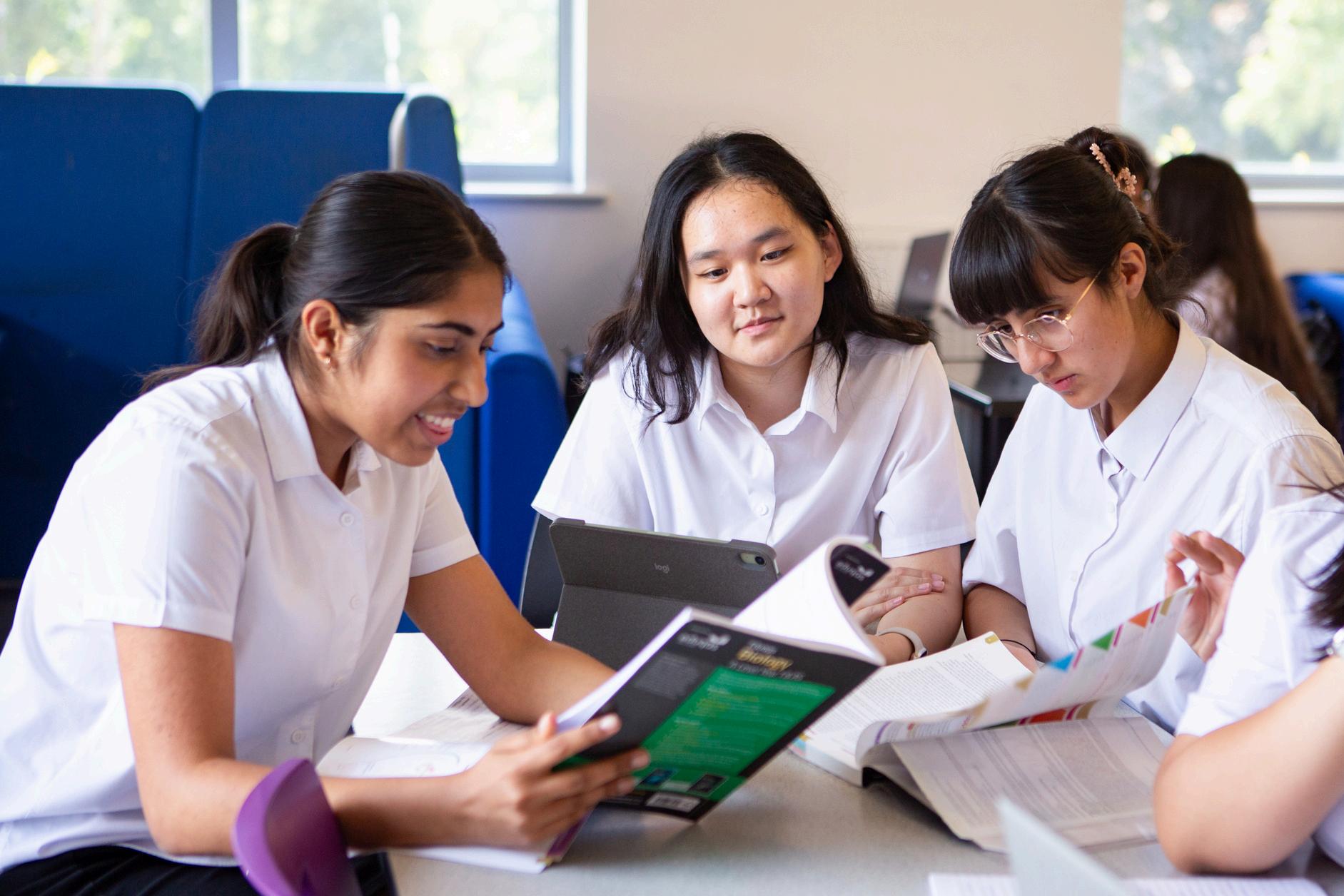
Having a foreign language at A level shows a real breadth of knowledge and that you have developed expertise in communication and critical thinking, which are readily transferable and highly sought-after by universities and employers You will develop a wide set of skills, including, but not limited to:
presenting written and spoken ideas clearly and concisely communicating, developing, justifying and defending points of view in natural conversation
Continued study of French, German or Spanish will allow you to improve your knowledge not only of your chosen language, but also of English Language study allows you to build your general knowledge, from studying literature to learning about history and society, to researching current affairs and analysing topical articles.
There are opportunities for trips abroad for A level students, as well as other cultural and language based trips and opportunities, which will all help you to deepen your understanding of different cultures You will also attend weekly sessions with the Language Assistant to boost your fluency and confidence even further
Entry Requirements
GCSE Grade 6 in your chosen language
Students are required to purchase their own textbook(s) for this course
A wide range of topics are covered at A level including themes such as the Spanish Civil War, divided Germany, France under Nazi occupation, immigration, wealth and poverty, technology, politics and culture through film, music, art, literature and architecture
The skills used in Languages complement a whole range of different subjects:
Structuring essays, organising ideas, critical thought and analysis
Logical grammar knowledge and application
Subject content – history, arts and contemporary society
Practical debating and presentation skills are assessed – listening and speaking
There are all sorts of courses at university which include a language, which open up opportunities to which many of your peers without a language would not have access For example Law with French Law at the University of Birmingham, Biochemistry with German for Science at Imperial College, London or Accounting with Spanish at Cardiff University
As well as traditional language-based careers such as interpreting, translating and teaching, Languages open up careers in international companies anywhere in the world; BMW, Médecins sans Frontières, Zara, L’Oréal, Ferrero, Santander, Haribo, Airbus
Further Information: Mr C Holbrook
Edexcel A level Music provides opportunities for you to develop knowledge and understanding of musical language through the study, creation and performance of a wide variety of music. It places significant weighting on practical skills The options offered will encourage you to perform and compose in styles which suit your taste and experience You will build on knowledge and skills gained through GCSE Music and your experiences of extra-curricular music both in and out of school
Grade 6 in GCSE Music and Grade 5 in either ABRSM or Trinity
Extended 8-minute Performance 30%
One free or brief set composition and Technical Study (Bach Chorale) 30%
Further Musical Understanding (13 set works) 4
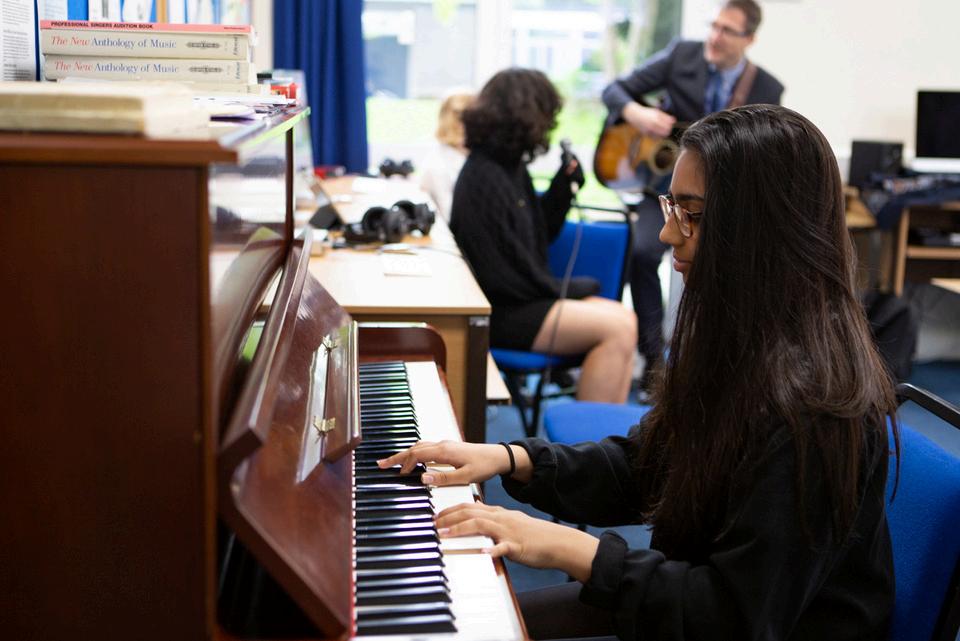
Music helps you to develop a variety of skills and qualities such as analysis, communication skills, selfconfidence and self-reliance, as well as providing a means of artistic expression and relaxation It stretches your imagination and playing an instrument also makes you think and react quickly Skills such as these are not just prized within musical careers; they are valuable to all types of employers Music is a highly regarded academic subject and whether you take it with a view to a career in music or as an additional A level subject, it is held in high esteem by universities and other institutions of higher education. Most people, however, study Music because they love it and you will have plenty of practical opportunities to develop your talents
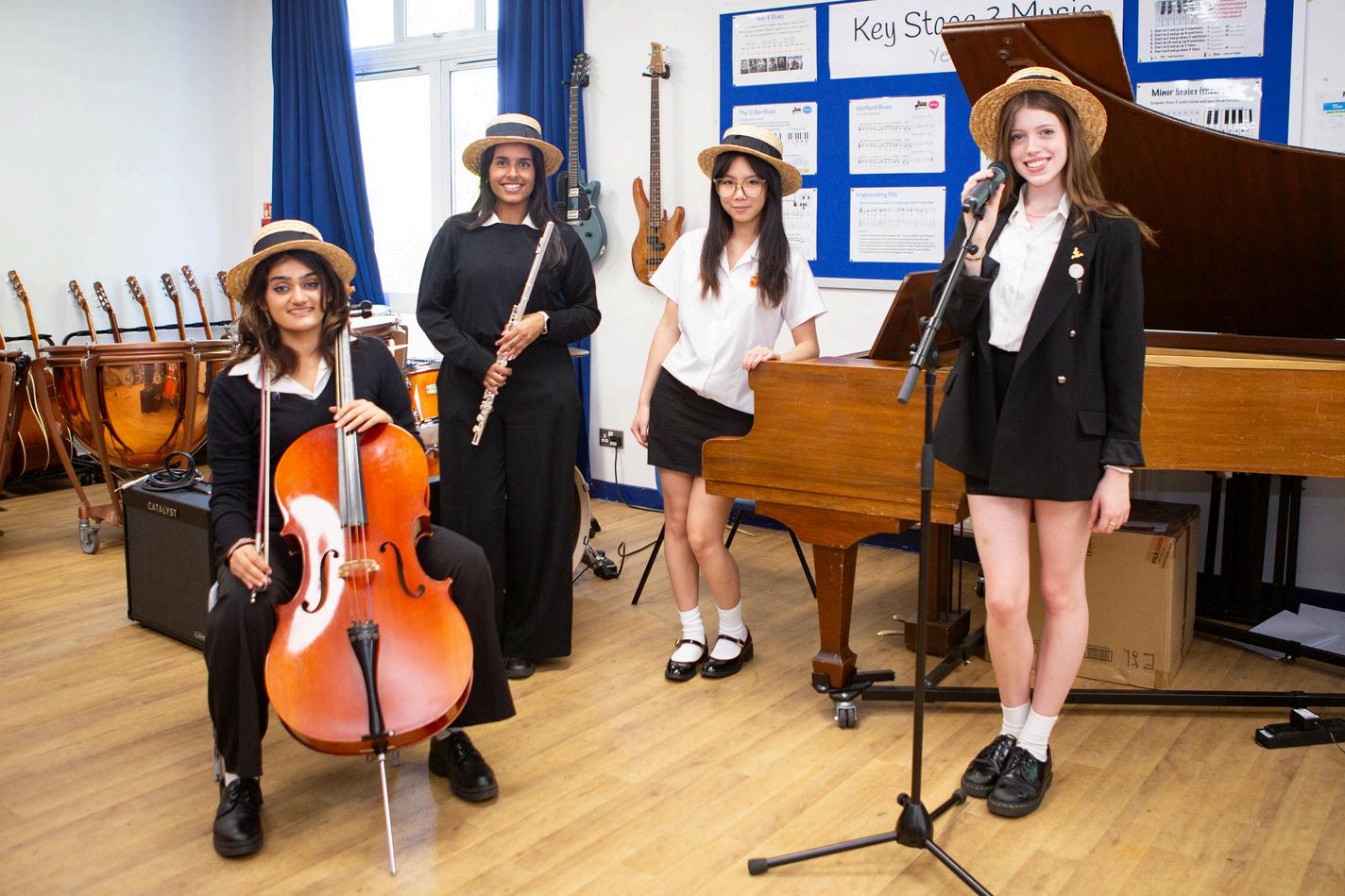
This course is broken down into two key components: Principles of Design and Technology and Independent Design and Make Project Component 1 is two papers; Paper 1: Specialist Technical Principles (30% of the ALevel) and Paper 2: Designing and Making Principles (20% of the A-Level) The Independent Design and Make Project is the Non-Examination Assessment (NEA) and is worth 50% of the A-Level
Students will study a wide range of materials/composition and application, including modern/smart materials, and processes used in product design and manufacture
Students will explore contemporary industrial/commercial practices applied to manufacturing products, and build an appreciation of the risks involved
Students will develop a good working knowledge of health and safety procedures and relevant legislation
Students will design within a sound working knowledge of the use of ICT and systems and control
Designers from the past will provide inspiration for present and future designing and students will be made aware of the important contribution that key historical movements and figures have on modern design thinking.
Students will develop an awareness of wider issues in design and technology, such as the profound impact of manufacturing practice on the environment and society, and the importance of having sustainability at the forefront of all design thinking.
Mathematical and scientific principles are an important part of designing and developing products and students will learn to rigorously apply these principles when designing
GCSE grade 6 in Design and Technology or GCSE grade 6 in a Visual Arts subject In exceptional circumstances pupils may be admitted to the course who can demonstrate an aptitude towards and passion for Product Design having not studied the subject at GCSE, providing they have met the WBGS/WGGS basic Sixth Form entry requirements.
Students are required to purchase their own textbook(s) for this course.
The purpose of this project is to develop students’ skills in designing and making a prototype The term ‘prototype’ means an appropriate working solution to a need or want that is sufficiently developed to be tested and evaluated (for example, full-sized products, scaled working models or functioning systems)
Students will work individually and in consultation with a client/end user to identify a design possibility and design context from which they will develop a range of potential solutions, eventually realising one through practical making activities
Students are encouraged to develop creativity and imagination when applying iterative design processes to develop and modify designs, and to design and make prototypes solving real world problems, considering others’ needs, wants and values. There are no limits to project selection beyond the time and resources available and the appropriateness of selection in matching individual students’ potential. Students are expected to take ownership of all aspects of their work in this project, in order to allow them total control of their responses and to target assessment criteria effectively, and to maximise their achievements
In order to reach high attainment levels, students must adopt a commercial design approach to their work, reflecting how a professional designer might deal with a design problem and its resolution
Mathematical and scientific principles are an important part of designing and developing products and students will be expected to be able to apply these principles when considering their designs and the designs of others
Further Information: Mr T Beale and Mr N Brookes (Watford Grammar School for Boys)
Psychology is the science of mind and behaviour. A Level Psychology is highly scientific and theoretical Psychologists systematically investigate human behaviour and experience with the aim of trying to explain, understand, predict and manage behaviour It is valuable to know what Psychology is not:
Psychologists will not explain the meaning of dreams.
Psychologists do not diagnose mental disorders (which is what psychiatristsmedical doctors who have specialist psychiatric training do).
Psychologists do not offer therapy or counselling, that’s the job of psychotherapists, not psychologists
Psychologists do not read your mind!
Psychology is not the same as counselling and therapy
However knowledge of Psychology can be useful when opting to do further training towards a qualification in counselling which typically occurs at postgraduate level but can be offered at undergraduate level.
Grade 6 in both Mathematics and English
Language or English Literature, plus at least one Grade 6 in science. If you achieved a grade 5 in Mathematics, and you wish to study Psychology you will need to study Core Maths alongside your three A Level choices.
Text books and/or resources will need to be purchased by students
Introductory Topics in Psychology
Students will demonstrate knowledge and understanding of psychological concepts, theories, research studies and methods, and ethical issues in relation to the specified Paper 1 content such as Social Influence, Memory, Attachment and Clinical Psychology and Mental Health.
Psychology in Context
Students will explore the basic assumptions of the psychological approaches such as the Biological Approach and Cognitive Neuroscience, Cognitive Psychology, Behaviourism, Social Learning Theory, Psychodynamic Approach and Humanism This topic also comprises of research methods that psychologists use to conduct research
Issues and Options in Psychology
This section focuses on real world behaviours and problems such as Schizophrenia, Aggression and Relationships. Students will also be looking at issues within psychology such as gender and cultural bias and debates whether an individual has free will or behaviour is determined
Links
Psychology includes a strong scientific focus so is beneficial to students studying Mathematics and Science It’s also a useful subject to include for students who are studying humanities, as it’s an interesting course that will broaden your skills
Further Information: Mrs P Holahan, Ms F Virk, Ms C Hunt
Studying Religion, Philosophy and Ethics in the Religious Studies A level, means engaging with some of the most profound questions about belief, morality, and human existence
Students will undertake a subject that is vastly different to GCSE and explore how Christian thought has shaped society, how philosophical reasoning challenges assumptions, and how ethical theory applies to real-world dilemmas. This subject develops students’ clarity of thought, intellectual reasoning, and the ability to apply and evaluate complex ideas
The Religious Studies A Level is rigorously academic It is highly regarded by top universities and employers, with Theology being one of the oldest academic faculties at Oxford and Cambridge! Students enjoy lessons full of debate and discussion, but also high expectations regarding written work Student are expected to read widely, write analytically, and engage with ideas that may be very different to their own.
The course is assessed entirely through examination essays, requiring a sophisticated academic voice, reasoned argument, and the ability to evaluate competing viewpoints
These skills in application and communication are widely transferable for success in higher education and beyond
The course is perfect for students who; Enjoy debating complex ideas and exploring different worldviews on faith, morality and existence
Are confident essay writers or keen to develop advanced writing skills
Want to study a “facilitating” subject that complements both humanities and science
A Levels.
Are considering careers in law, medicine, politics, journalism, or business.
Enjoy going on visits to university style lectures and conferences
Are aiming for competitive university courses, including Oxbridge and Russell Group institutions
A level is based on extensive essay writing Competence in English Language is essential Therefore, a Grade 6 English Language or English Literature is required.
Where GCSE Religious Studies has been taken, a Grade 6 or above is required Where GCSE Religious Studies has not been taken, a Grade 6 or above in another humanities subject is required: i e Classical Civilisation, History or Geography
Further Information: Mrs J Tootill
Students complete 3 papers as part of the A level This includes an in-depth study of Christianity, Philosophy of Religion and Ethics
We follow the Eduqas A level specification and core units of study include;
Inductive and deductive arguments for the existence of God
The problem of evil
Situation ethics
Natural moral law
Utilitarianism
Free will and determinism
Feminist Theology
Religious Figures and Sacred texts
The Eduqas A level in Religious Studies provides a broad academic foundation and is particularly valuable for students who want to show they have ethical awareness, and the ability to engage with others from different cultural, philosophical, and religious perspectives.
RPE draws on sociology, psychology, history, art, science, and even mathematics, making it one of the most interdisciplinary A Levels available Students who study RPE often go on to degrees and apprenticeships in Law, Politics, Economics, Philosophy, Journalism, Criminology, and Business It is also highly regarded by medical schools, where medical ethics is a core part of their onward study Studying RPE alongside science subjects can strengthen applications for Medicine, Dentistry, and related fields because of this ethical element.
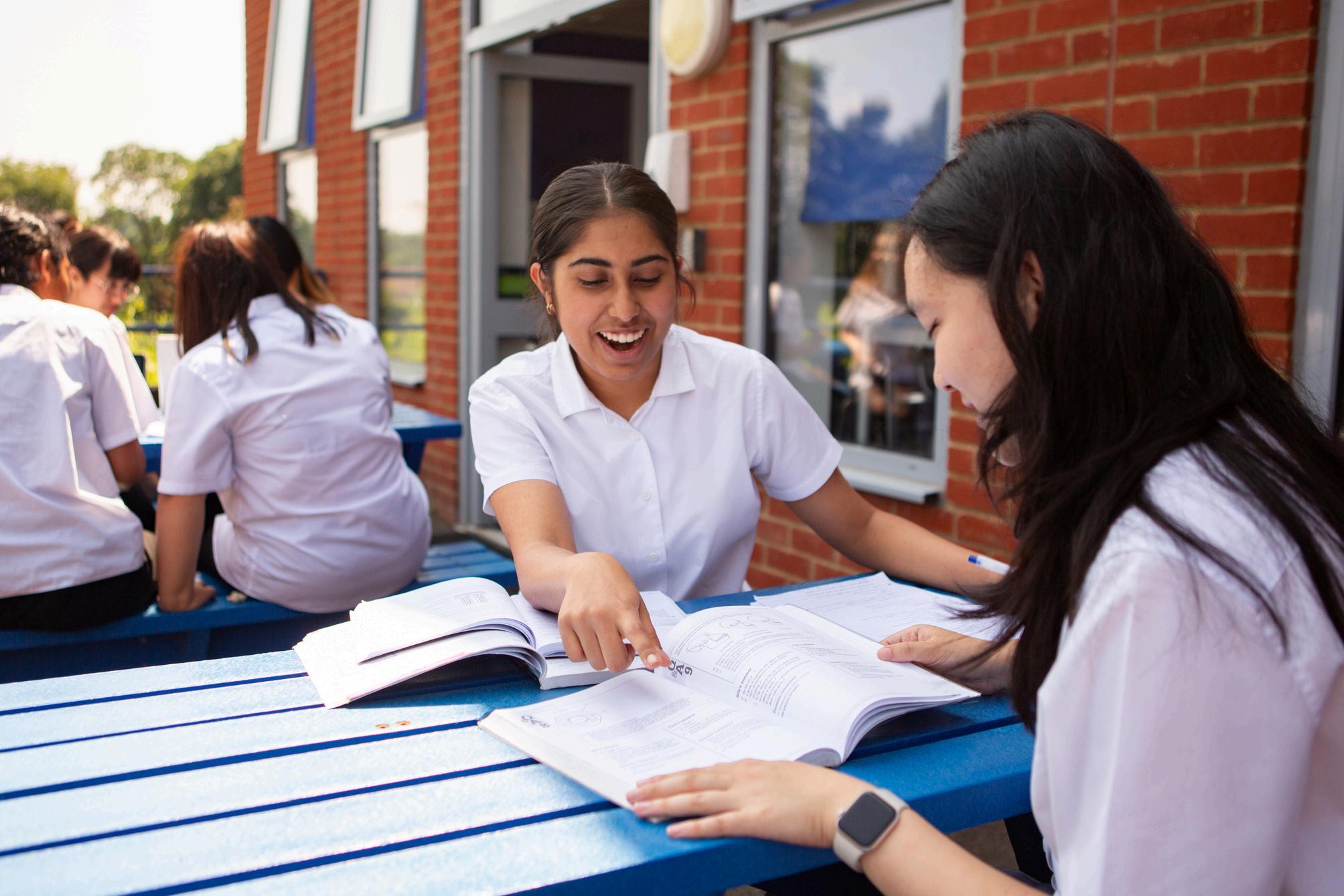
The challenging and diverse nature of Biology makes it a prized subject in any profession, but most importantly the subject instils a passion for life itself The study of Biology at A level is designed to develop a student’s interest in, and enthusiasm for, the subject To achieve highly in this subject you will be expected to work collaboratively with your peers and staff.
An understanding of scientific method is promoted to increase scientific knowledge and to develop an enquiring and critical approach Students will develop awareness that different perceptions, predictions and interpretations can be applied according to context
The study of Biology encourages an appreciation of how society makes decisions about biological issues e.g. GM foods, genetic engineering, global warming, healthy living, epidemics, farming, and pest control as well as providing an insight into the living world. An investigatory approach to practical work is an intrinsic part of Biology
Biological compounds, cells, enzymes
Photosynthesis, respiration, microbiology, populations, ecosystems, human impact on the environment
Genetics, evolution, sexual reproduction
Adaptations for gas exchange, transport and nutrition
Homeostasis and nervous system
A level Biology is an ideal subject to allow access into higher education in both biological and other nonbiology based subjects Skills learnt are invaluable to a career in the Life Sciences, including Environmental Science, Dietetics, Nutrition, Biomedical Science, Biochemistry, Nursing, Botany, Zoology, Medicine, Dentistry, Forensics, Pharmacy, Physiotherapy, Psychology and Veterinary Medicine Biology can be studied at A level with any other combination of subjects, but if students want to progress onto any biological based course then Chemistry A level should also be studied.
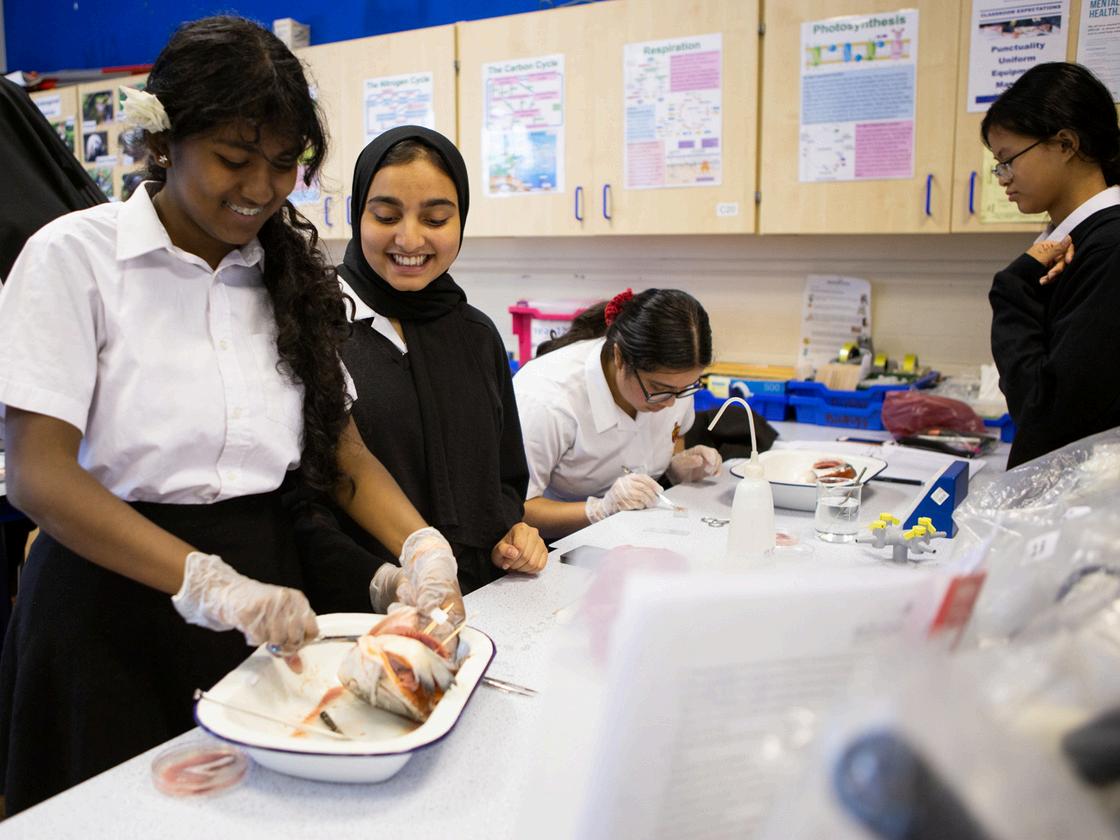
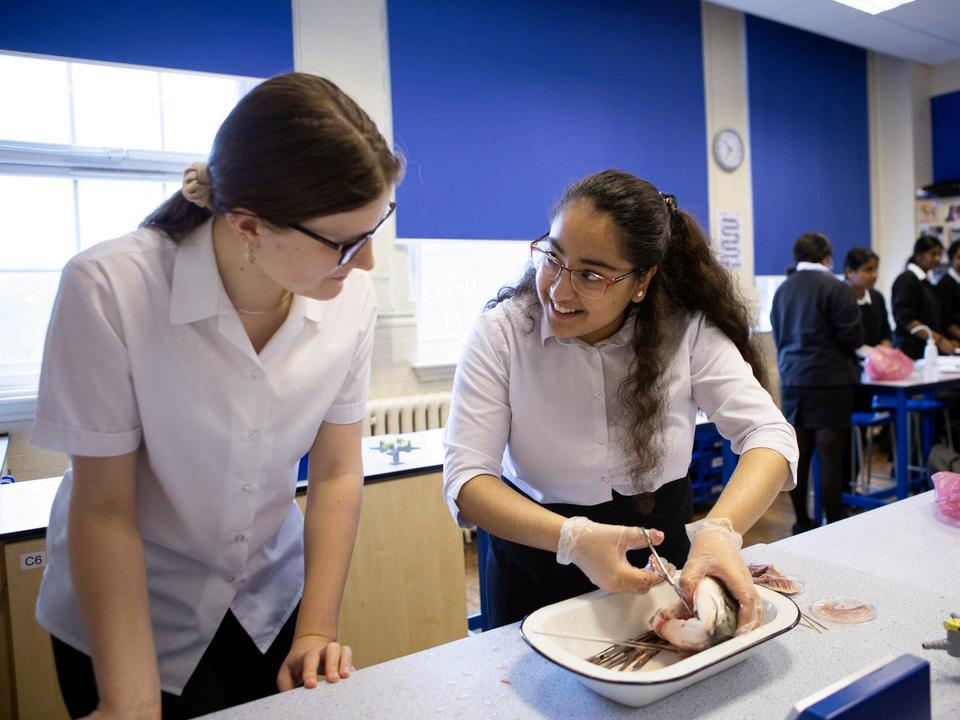
By studying Chemistry at A level you will acquire a wide range of skills and learn about ideas and concepts which address all the important questions in modern science You will learn about a number of the key issues which face us, from environmental issues to new developments in pharmaceuticals
The skills that you will develop whilst studying an A level in Chemistry are wide ranging and will prepare you for a variety of careers. You will develop problem solving, time management and team working skills whilst carrying out a wide variety of experiments. You will become adept at data handling, demonstrate your numeracy and have opportunities to become a more confident communicator
Chemistry is a practical subject and much learning will be through laboratory experience Many topics included in Chemistry A level will be familiar from GCSE, including calculations, atomic structure, energy, bonding, reaction rates and equilibria. The ideas introduced during GCSE are developed, challenged and expanded upon throughout the two years. Chemistry is split into three main areasOrganic Chemistry, Inorganic Chemistry, and Physical Chemistry You will cover a range of topics under those three headings including:
Organic Chemistry: Alkanes, Halogenoalkanes, Alkenes, Alcohols, Organic Analysis, Isomerism, Carbonyls, Carboxylic Acids, Aromatic Chemistry, Amines, Polymers, Organic Synthesis, and Amino Acids, Proteins and DNA.

Inorganic Chemistry: Periodicity, Group 2 Metals, Group 7 Elements, Properties of Period 3 Elements and their Oxides and Transition Metals.
Physical Chemistry: Atomic Structure, Amount of Substance, Bonding, Energetics, Kinetics, Redox, Thermodynamics, Electrode Potentials and Acids and Bases
Chemistry is sometimes called the ‘central science’ and is supported by studying A levels in Physics and Biology Studying Mathematics helps to support the numerical aspects of the course There are strong links to other subjects, including Geography
Further Information: Mr S. Burns
Chemistry is required for a number of careers including many in Medicine, Dentistry and Veterinary Science. It is recognised that it also gives you skills that support careers such as Law, Marketing, Education and Finance
Physics at A level is a highly respected qualification that opens doors to many different careers It looks at some of the big questions like “How did the universe begin?”, “What are the basic building blocks of matter?” and “How does the sun keep on shining?” It helps you to begin to understand the technology around us, for example, how music is produced and synthesised and how Physics is used in the food industry
Doing A level Physics will develop the following skills: problem solving, reasoning, numeracy, ICT and communication. During experimental work you will learn planning, practical and observational skills. You will also have the opportunity to work in a team and undertake data handling You will become able to construct logical arguments, apply analytical skills and grasp complex problems The ethical, moral and environmental issues related to technology are considered
Physics is one of the Russell Group’s facilitating subjects; these subjects leave open a wide range of options for university study if you are not sure what you want to do yet.
To study one science subject only, grades 666 required in triple science or 66 required in combined science.
To study two science subjects, grades 667* required in triple science or 76 required in combined science
To study three science subjects, grades 677* required in triple science or 77 required in combined science
*in any Science subject
Physics at A level will be learnt through theory and experiments. Many topics will expand on and develop the GCSE material including Mechanics, Electricity, Waves, Radioactivity, Space and Energy. You will begin to see how these topics work together and also be equipped for the study of the new topics on Materials, Fields and Particle Physics
Physics is the science that explains the world and universe around us There is a strong link between A level Physics and Mathematics, although many previous students have achieved highly at Physics without taking Mathematics A level There are also links to the other sciences and Geography. Studying Physics makes you an excellent problem solver so it combines well with and complements most other A level subjects.
Physics is required for several degree courses including Engineering, Physics, Medical Physics, Materials Science and some Earth Science and Chemistry courses Physics A level will give you valuable skills which are relevant to numerous careers in computing, finance, education, medicine, consultancy and music amongst many others
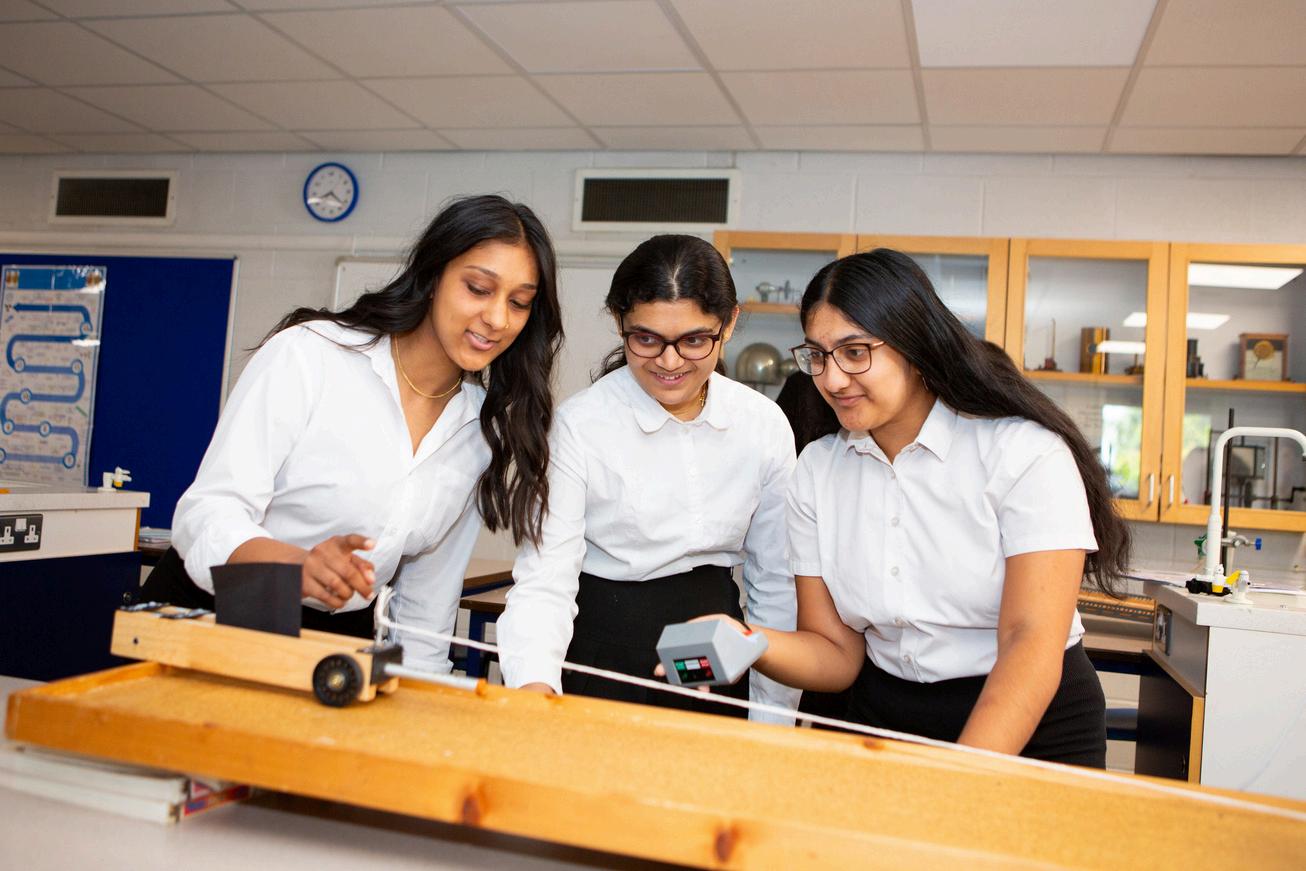
Sociology is the academic study of social behaviour, its origins, development, and institutions; in other words, it is the study of people Sociology is a subject that will challenge your preconceptions and encourage you to question the society in which we live; it is an essay-based study that requires excellent powers of interpretation and analysis. Lessons include discussion, essay writing, debating and other activities aimed at encouraging students to view the world through a variety of lenses
Grade 6 in English Language or English Literature and grade 6 in a humanity subject Text books and/or resources will need to be purchased by students
Sociology is a comprehensive subject that complements other social sciences and humanities as it will enhance your analytical and evaluative skills We cover a wide range of topics that are relevant to several other A level subjects such as RS, History, English, Psychology and Government and Politics For those who are studying Mathematics or Science, Sociology is a great ‘allrounder’ that will broaden your skill set and provide you with an in-depth knowledge of issues facing contemporary society.
A level Sociology is useful for those who are interested in a career in research, Law, Journalism, Politics, Media, Social Work, Teaching and Charity Work, amongst other professions.
Further Information: Ms M O’Loughlin
Core themes in Sociology include socialisation, social differentiation, power and stratification.
Education - Who does it benefit? Why are certain individuals more likely to succeed in education? Do educational policies benefit all of us equally? Research Methods - how do sociologists conduct social research? What are the strengths and weaknesses of different research methods?
Culture and Identity - what are the main influences on our identities? How can we argue that the self is socially constructed? Who decides what is considered ‘high’ culture?
Crime and Deviance - why are certain groups more likely to commit crime? How can we prevent/control crime? How has globalisation affected crime?
Sociological Theory - what are the main sociological theories? Is Marxism still relevant? Why can feminists not agree with each other?
Beliefs in Society - what is the relationship between religion and science? Why are certain groups more likely to be believers? Is religion losing its significance in the world today?
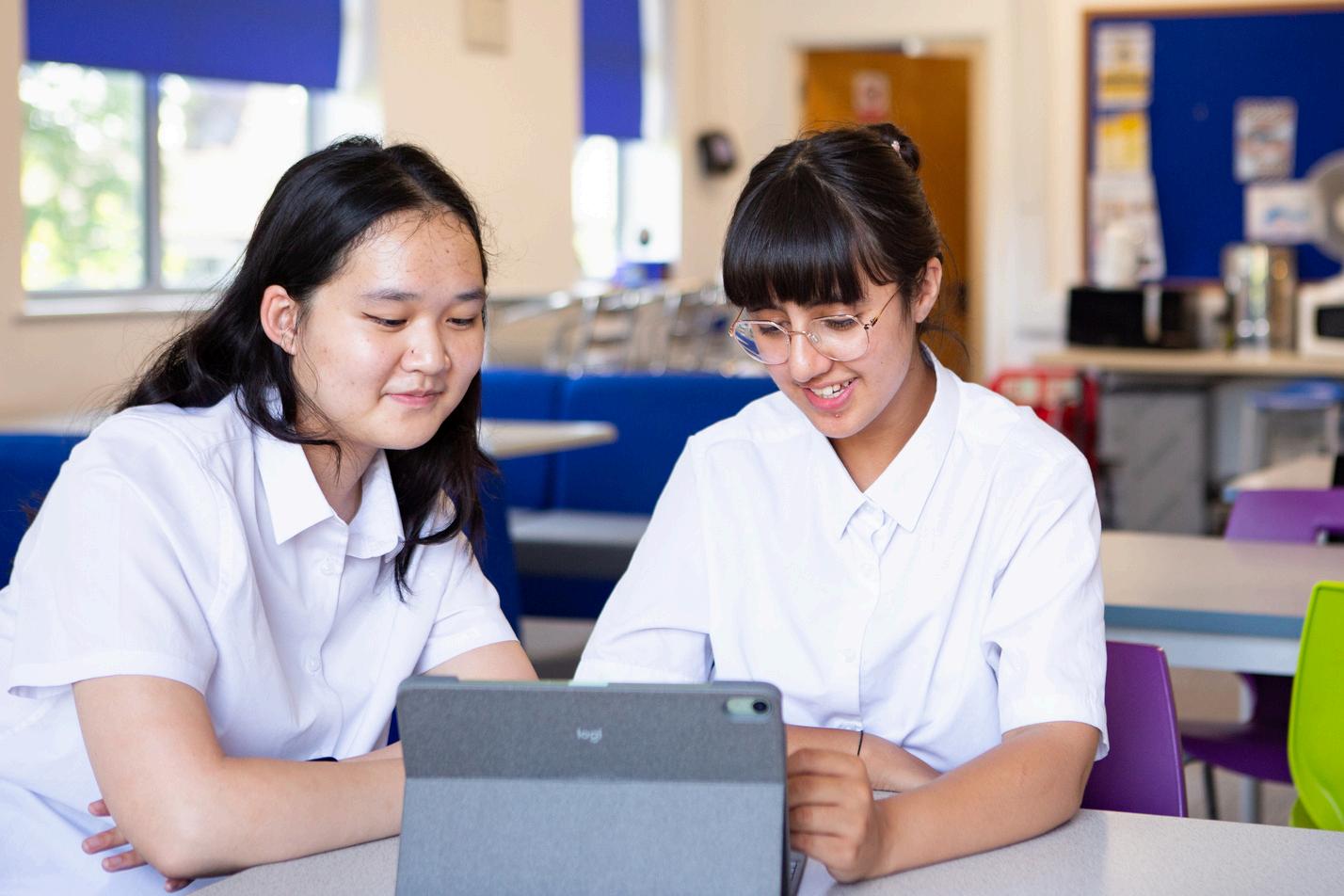
EPQ is an A-level standard standalone qualification designed to extend and develop students' abilities beyond the A-level syllabus and prepare for university or their future career It is the equivalent of half an A-level and worth 28 UCAS points
The EPQ allows students to lead their own projects Students get to plan and carry out research on a topic that they've chosen and isn't covered by their other qualifications They can take inspiration from something touched on in class or something personal and unrelated to their studies. They then use this research to produce a written report and, in the case of practical projects, an artefact or a production.
At Watford Girl’s the course is run and competed in year 12. The taught part of the course is delivered as a series of lectures during the first half term. After that the students are allocated a supervisor and timetabled for one period a week with that member of staff
The course is available to any students who are studying 3 A-levels and there are 50 places available on the course
Exam Board: AQA
Level 3 Extended Project Qualification (7993)
Further Information: Dr S Allen
